Comment: NHS staffing crisis



Venue: the battle of the final girls
The first Union Council meeting of the academic year brought us a range of new motions, including Part-time Nonportfolio Officer Nathan Wyatt’s ‘warm banks’ proposal.

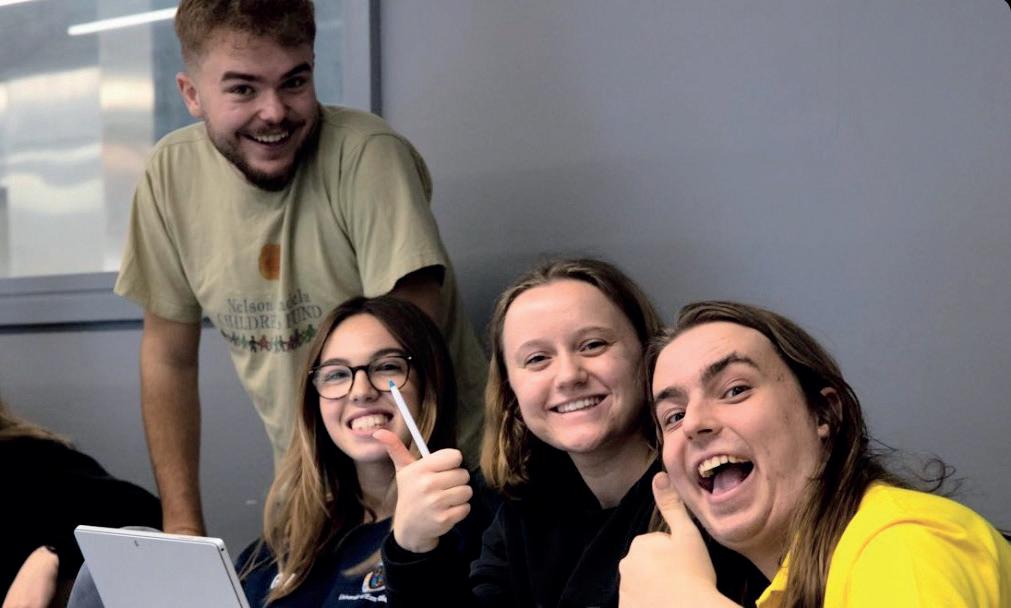
Nathan introduced the proposal to the Council by explaining his motivations; “the cost-of-living crisis affects lowincome groups like students the most”, students shouldn’t have to face the choice between “heating or eating” and the university is in a “unique position” to provide warm spaces.
The proposal explains the three main elements needed for the 'warm bank' to be successful:

"1. Overnight heating for social spaces.
2. Heating resources to rent/borrow e.g. hot water bottles, blankets to use in social spaces.
3. Advertisement and a webpage, interactive map, [and] posters noting the

warm room."
The motion to lobby the university for this support attained a 98% approval in the Union Council meeting.
country already have 'warm bank' schemes in place, including the University of Bristol. However, their 'warm bank' spaces close at 6pm on weekends- a flaw met with significant push-back from students, and one which those pushing for one at UEA are keen to avoid.
The main focus of the project would be Campus Kitchen- a building empty once evening meals have been sold, that can easily be kitted out with blankets, hot water bottles and patrolled by security without any drastic change. Nathan also described the importance of the 'warm bank' to be open to all, and not shrouded in shame. Hence, Campus Kitchen, in his opinion, would be an ideal space as students use it for various other purposes too.
about

the national average".
It explained some of the survey's key findings; "Living costs have seen a 14% increase" since 2021, whilst the average student now sends £924 per month. This means "the average student's Maintenance Loan falls short by £439 every month".
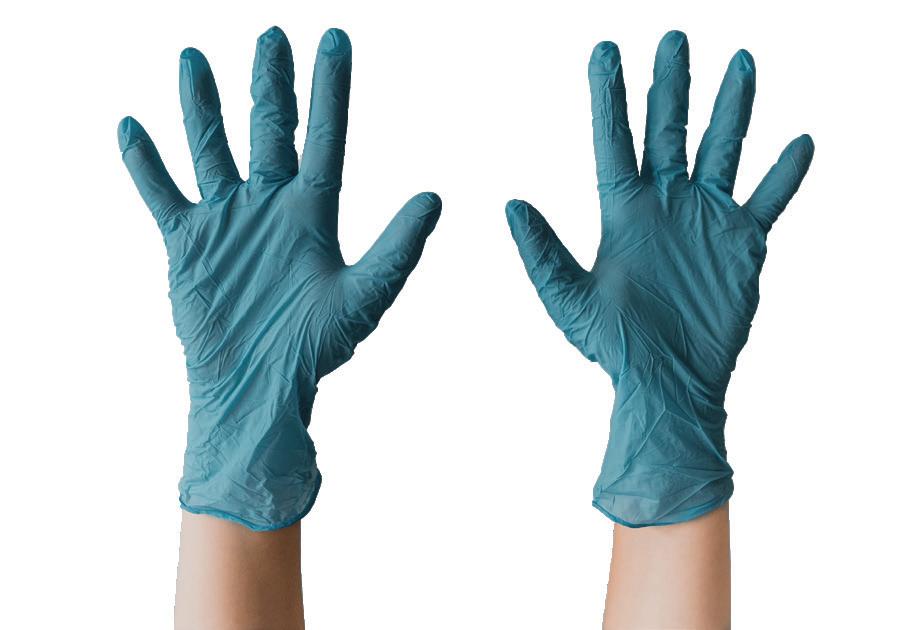
Naturally, this has led to an increase in students using food banks- now at one in ten, according to the survey. This has also increased the proportion of students who have considered "dropping out" due to "money worries"- 52%.
annual
A 'warm bank' is a designated warm space designed for those unable to heat their homes. The cost of living crisis has exponentially increased the demand for these spaces.
Several other universities across the

There are other 'warm bank' spaces in Norwich and Norfolk too, which may be useful for those often off-campus. These include St Stephen's church, MAP and Silver Road Community Centre. You can find more at warmspaces.org, an online directory of warm banks available to the public over this winter- where-ever you are in the UK you'll be able to find the one nearest to you.

Though considered a beneficial initiative for many, there are some who argue 'warm banks' take the responsibility of warm, safe and affordable housing away from the government, and from landlords.
It is clear from the popular 'Concrete Confessions Between the UEA Seshions' Facebook group, where students have expressed their frustration at a lack of heating on campus, that this type of initiative is in high demand.
From the lighthearted "@uea how
There are people you can talk to if you find yourself in this situation, the SU or SIZ will point you in the right direction for support and Nathan can be contacted at nathan.wyatt@uea.ac.uk.
We're collectively approaching a long period of cold, often lonely nights. The leaves are dropping and so is our motivation, or at least that's the mood in the Media Office.
This issue of Concrete, we've come to realise, is rather bleak. It's certainly reflective of the time we're living in, though I think the dark afternoons provide a canvas for all those little moments of joy which we may ordinarily forget to cherish.
My little bit of happiness came from seeing my 'baby' sister
for her sweet 16th. We took the break in the Lake District, a place which always fills me with peace and feels like a warm hug.

I don't get the chance to 'get away from it all' often enough, and with the cost of living crisis driving prices up it's simply not going to be an achievable luxury any time soon.
Instead, my partner and I are being more intentional with our time- planning weekend walks inbetween work shifts or enjoying a glass of wine in an evening instead of staring at a screen.
This time remains important, as I'm sure we're all dreading the countless restless nights ahead of us as summative assessment deadlines approach.
The one thing I have been able to count on to soothe me on those nights has been comfort music. If you know me, you know exactly who I'm talking about. (Matthew and Louise's editorials may give you a clue).
The three of us wish you all well, we're certainly looking forward to our winter holiday edition to cheer us up- but I hope you can find the little wins within this issue's pages nontheless.
I’ve been struggling to write this issue’s editorial, which feels like an incredibly frivolous worry to have considering the state of the world right now.
The struggles of this month, this year, this decade are very much throwing us from one major even to the next (seriously, I’m waving goodbye to the Roaring 20s revival fantasy).
Even as I write this, the rain is crashing relentlessly and things are very dark right now (literally and metaphorically). The clocks have changed and ye olde winter
is slowly starting to creep its way in, only adding another mental weight to myself and many others who experience Seasonal Affective Disorder. In the many previous drafts of this editorial, I tried to remain light and jovial, before realising I was going against my own values and the values of this newspaper.
All of us at Concrete champion truth and authenticity, and I wasn’t doing either by trying to put up a front.
A lot of things feel hopeless, but there are people out there who are still trying to do good, both for their own betterment and for the betterment of others. Close to home, here at UEA, our very own teachers, lecturers and staff are championing
for better pay, working conditions and pensions, which you will able to read more about in our News section in an illuminating article by Eleanor Radford.
Support is here for anyone who needs it. From the Student Information Zone, to the SU, to your advisers and to your friends.
Lean on each other, and don’t be afraid to speak up. In the spirit of authenticity, times are pretty rough right now, and I wouldn’t be surprised if you skipped an article or two just for the sake of peace of mind, always put yourself first.
See you in the next issue.
Are we doing ok UEA? I’m struggling to find anyone who’s not stressed out at the moment (myself included), and I have to say I can’t really blame us. Whether the work is building up that little too much, those summative deadlines are looming or you’re a final year worrying about the future, student life is not all roses. Add to that external factors like constant shifts in government (I think we must be the first Concrete team to report on the accession of two Prime Ministers), cost-ofliving concerns and even the miserable weather we’re having and it’s easy to see how stress can build.
However, I am here to say to you (and myself if we’re being honest) that you’re doing really well. People outside of universities can be critical of students as having an easy life, but frankly that’s not true. Every bit of reading you get done today is a win, every paragraph you write of that essay you’ve been putting off is one step closer to achieving your dreams in the long run.
If you can’t find that perspective right now, step away and do something you love. Read a book for pleasure, watch a TV show (I’d recommend Cunk on Earth if you just need a good laugh) or stick on your favourite music (for me that would be 80s classics, 00s/early 10s electropop or Eurovision, for my fellow editors it would be Taylor Swift) and relax into the groove!
What may seem hard now will soon be in the past – new worries will come but so will new happiness. Never lose hope x
The University of East Anglia’s Official Student Newspaper since 1992
Tuesday 8th November 2022 Issue 390 Union House University of East Anglia Norwich NR4 7TJ 01603 593466
www.concrete-online.co.uk
Editor-in-Chief Libby Hargreaves concrete.editor@uea.ac.uk
Deputy Editors Badriya Abdullah & Matthew Stothard News Jamie Bryson Home of the Wonderful Ronaldo Martins Senior Writer: Alexandra Ashby Global Leo Henry Features Sienna Norris Comment Eve Attwood Science George Barsted
Travel & Lifestyle Finlay Porter Sport Dan Laughlan Senior Writer: Drew Murphy
Breaking News Jamie Bryson Leo Henry
Online Editors Kanon Higashi Concrete Photographer Prakrita Rahman

Venue Team Louise Collins Lily Boag Ray Khawaja
concrete-online.co.uk
Front page photo: Unsplash, Nathan Wyatt, Leo Hoffman
Cut-outs: All Unsplash

Rosie Kyrin-White Daze Constantinides Clem Hailes
Tshequa Williams Tabi Fielding Jessica Clifford Tom Porteus Millie Smith-Clare Alexandra Ashby
Editorial Enquiries, Complaints & Corrections concrete.editor@uea.ac.uk
No part of this newspaper may be reproduced by any means without the permission of the Editor-in-Chief, Libby Hargreaves. Published by the Union of UEA Students on behalf of Concrete. Concrete is a UUEAS society, but retains editorial independence as regards to any content. Opinions expressed herein are those of individual writers, not of Concrete or its editorial team.
A survey commissioned by BBC Radio 1 and Newsbeat has found that only 17% of young people aged 16-24 feel positive about the future of UK politics.
The survey of 2719 - carried out by Ipsos UK between September and October 2022 - also found that only 12% of those surveyed trusted politicians, whilst 52% felt that political parties in the UK do not care about young people.
This comes less than a month after Rishi Sunak was chosen as the UK’s third Prime Minister of 2022 by Conservative MPs, as the only candidate to reach the threshold of 100 Conservative MPs supporting him by the deadline.
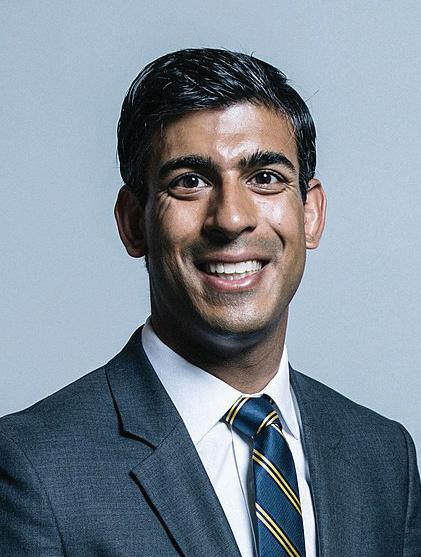
Trust in politicians is coming under particular scrutiny at the moment, following Suella Braverman’s reappointment as Home Secretary, only six days after she resigned from the role after breaching the Ministerial Code by sending an official document to a parliamentary colleague using her private email
address.
In recent days Braverman has also come under criticism over suggestions she ignored legal advice and blocked hotel accommodation for migrantssomething she has denied.
Furthermore, opposition parties and campaign groups have honed in on the MP for Fareham, for her description of boats carrying migrants across the Channel as “an invasion of our southern coast.” Immigration Minister Robert Jenrick defended the remarks as “a way of conveying to the public the sheer challenge that we’re now facing,”
Shadow Home Secretary Yvette Cooper responded “No Home Secretary serious about public safety or national security would use the language Suella Braverman did.”

Despite the change in leadership, Mr Sunak faces many of the same problems as his predecessor Liz Truss, with the cost-of-living crisis remaining at the top of his agenda.
Newsbeat’s survey also revealed that 52% were worried about the
rising cost of living and inflation, with 18% highlighting it as their primary concern.
Furthermore, 10% of young people claim to have used a food bank in the last 6 months, whilst more broadly 62% said they had taken practical action to save money.
Outside of party politics, the survey also uncovered young people’s opinions on a variety of political issues. Only 26% of those surveyed were positive about the future of the environment, at a time when Just Stop Oil continues to carry out protests across the country.
More broadly, 21% said they had taken part in a protest of some kind. Social ideas were also explored in the survey, with 56% agreeing that people should identify with whatever gender they feel most comfortable with, whilst 44% felt that gender does not need to be binary.
results in this area, with 76% saying that they were ultimately happy.
Moreover, despite being largely negative about the future of political issues, those surveyed were more positive about their personal futures, with positivity about the future of their careers, academic achievements and personal lives all scoring above half.
Overall, only 20% were found to be positive about the future of the UK economy. The government is yet to reveal much of its plans to deal with the crisis, with the planned Autumn Statement being pushed back to 17th November.
It will be delivered by Jeremy Hunt - kept in post as Chancellor of the Exchequer by Mr Sunakand is expected to include public spending cuts across government departments.
A potential generational gap can also be seen from the results, with over half of young people feeling that older people are out of touch with the issues they face.
There were also more personal issues examined in the survey, including mental health, which 39% said they were worried about looking after. 27% chose anxious as the best word to describe themself, the second most popular after hard-working.
There were also more positive
After two resounding ‘yes’ votes on the 24th of October, over 70,000 university administrative staff and academics could soon go on strike imminently.
The ballots were held by the University and College Union (UCU), with its members comprising those working in the higher education sector, such as academics and administrative staff. With more than eight in ten union members voting ‘yes’ to the ballots, it is clear that change is wanted across the board.
The first of the two ballots were over pay and working conditions, with the union demanding a meaningful pay rise to deal with the cost-of-living crisis. This comes after staff were only offered a three per cent pay rise, whilst a third of staff remain on temporary contracts. Eighty-one percent of union members voted yes, with a fifty-eight per cent turnout.
The second ballot was over pensions, with a demand to revoke the thirty-five per cent pension cut the government made earlier this year to the future guaranteed retirement income of an average
member. Eighty-five per cent voted yes and there was a turnout of sixty per cent.
After these results, the union has called on vice chancellors of 150 universities to enter negotiations immediately and make improved offers in order to avoid disruption.
If these demands aren’t met, both academics and university administrative staff will have the option to go on strike, leading to a potential standstill in the higher education sector.
The general secretary for the UCU, Jo Grady stated at the result announcement, “Today history has been made by our members in universities, who in huge numbers have delivered an unprecedented mandate for strike action”. Such outcomes have been much harder to achieve since anti-trade union laws were passed back in 2016.
Unions including the UCU, have been calling for the proposed conditions for over two years. Back in 2020, the New Joint Negotiating Committee for Higher Education Staff (New JNCHES), repeatedly called for a new pay deal after a pay freeze was put in place during the pandemic, contrary to previous pay rise deals that were due to come into effect in August of that year.
At UEA, over three thousand employees continued to live with this freeze throughout 2020.. Thisalongside a voluntary pay reduction scheme and a voluntary reduction in working hours - has angered many working across the higher education sector.
In response, the university stated that, “these are challenging and unprecedented times for everyone and we are working with campus unions to ensure the university can adapt quickly and effectively”. Since then, in 2021 pay rises only went up by 1.5%, despite inflation rising to 4.5%.
Concrete spoke to the UCU chair for UEA, Michael Kyriacou; he told us that teaching would have to be stopped during any possible strike action, however, he added, there would be the possibility of “teachins”. This could involve a series of workshops and seminars discussing the strikes.
Alongside this, Michael emphasised the message that members of the UCU would prefer to come to a mutually agreed upon deal, as this would benefit not only the union members but student’s studies. He also hopes that beside the shortterm goals set out in the ballots, longer term goals such as pay gaps regarding gender, race and disability
and setting up a national framework for employers can be addressed.
Last Thursday - 3rd of November- the UCU’s higher education committee met to determine next steps in negotiations. In a Twitter post, Ms Grady confirmed three days of strike action would go ahead at the end of November - to be annouced this week.
The general secretary emphasised they
planned to "create the biggest picket lines our union has ever seen" and proposing the tag line "the longer our picket - the shorter the dispute".
Concrete will keep readers updated on any developments in the negotiations.

UEA has opened a food bank on campus, with the aim of helping students struggling to afford the bare necessities amid the costof-living crisis.
The Trussell Trust - a national foodbank charity - were contacted by the Students Union, who informed the charity that the university was coming across more students struggling to afford food. With students being on or living near the university campus, the on-site bank will be open to UEA students only, so it is easily accessible, with privacy and support offered. Students in need can drop into SIZ (on The Street) between 9 AM and 5 PM Monday to Friday to discuss their options and collect food parcels.
There were over 2.1million food parcels given out in the UK over the last financial year, with over 223,000 of them in the East of England. According to the National Union of Students, one in 10 university students now use food banks because they simply cannot afford to eat. With the prices of food, rents and utilities going up, concern amongst university students is growing.
Evie Cooper, first year student, said “I’m really lucky to have a part time job and a fixed rent for this year in uni accommodation, but I'm scared what my position will be next year when I look for housing”. However, despite this the Norwich foodbank and Trussell Trust have an ambitious vision to see an end to the need
for food banks within the next 5 years.
The foodbank will operate under the Norwich foodbank umbrella and is funded by grants and donations. The trust receives no direct government intervention. Despite this, the UK economy has an impact on the volume of people using foodbanks.
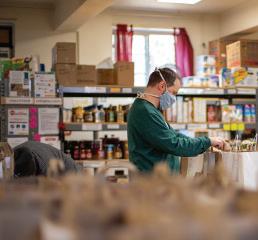
One UEA student, who would like to remain anonymous, told Concrete, “Despite the many challenges that students are facing, it feels as though we are an unheard voice in the eyes of the government. I did not get a say in the 2019 general election and now I am dealing with issues that I never voted for, which I am sure nobody else voted for too. ”
UEA originally started collections in 2015, beginning as a referral agency where
students in need could be directed to relevant food banks. However, it was only in 2021 when food parcels moved on site. Donations are not limited to food, with good quality clothing, sanitary products and toiletries also being welcome.
The Trust asked to pass on a big thank you to the university staff and students for their support in getting the foodbank up and running and sustaining it.
If you would like to donate, donations can be dropped at the SIZ, the SU shop or directly to the Trussell Trust warehouse at Henderson Business Centre.
For any more information on how you or someone you know can access the foodbank, please either visit SIZ (on The Street off the Square) or email studentsupport@uea.ac.uk
Deputy leader of Norfolk County Council, Graham Plant has proposed at least three new small-scale nuclear reactors to be built in Norfolk in order to supply the county with sufficient energy security.
Mr Plant - who holds the portfolio for economic growth at County Hall - hopes some of these can be built in Norfolk. He believes this could help solve increasing energy supply issues and offer opportunities for local growth.
His comments came in response to the Green Party’s proposed amendment for an increase in the amount of energy generated from renewable and efficient sources. He suggested that we cannot rely on wind and solar to fuel the increasing number of electric cars, adding “We need nuclear, as well as we need everything else”
Liberal Democrat County councillor, Steffan Aquarone,
condemned the suggestion, commenting “Aside from the fact they’re too slow, too expensive, and too dangerous, who in Norfolk is going to want these new nuclear power stations on their doorstep?"
Also opposed to the proposal is Green Norwich city councillor
had three of those in Norfolk that's our energy problem solved. If we had five, that also means that we would have growth, so we can have it for our industries as well."
Labour county council leader Steve Morphew feels Mr Plant’s proposal is a “shiny distraction” and doesn’t consider the urgency of the situation. Morphew added further that “Norfolk sits at the heart of renewable energy" technological advancement, with several government bodies and industry leaders currently surveying the East coast for further wind and hydraulic energy opportunities.
Jamie Osborn. He highlights “Renewable energy is far and away the cheapest form of energy and is the quickest to deploy.
New nuclear facilities are extremely expensive and cannot be built quickly enough to help reduce energy prices now."
In response to concerns over efficiency, Plant said, “"If we
On a national scale environmentalist groups and the Labour Party have submitted numerous calls for a national home insulation programme, as the cheapest and quickest way to improve the energy crisis for consumers.
Over the next 25 years, RollsRoyce has the government's backing to build a number of new factories across the country at which 16 small nuclear reactor plants will be produced.
The university has begun a widespread rollout of MFA (multi-factor authentication), in an effort to improve online security and bring UEA on-par with other universities and organisations- ensuring we retain access to content they provide, including a
range of learning materials.
Practically, this means students and staff alike simply download an authenticator app and link it to their UEA account.
Once this initial set-up has been completed, each time you log-in you’ll be prompted to enter a twodigit code into the app- this confirms it is in fact you accessing your account.
For the most part, it is a simple process and should not be a cause for concernany issues faced can be resolved by UEA’s ITCS department, who provide support for struggling students.
Photo: Wikimedia CommonsSome students worry they’ll be locked out of their account, which includes access to Outlook, Blackboard and E:vision.
As the summative assessment season approaches, the concern is they’ll be unable to submit assessments or request extensions within the allotted time period if they cannot complete MFA.

As of the date of publication (November 8), there are 10,000 people at UEA with MFA enabled on their account.
This is largely being offered to students throughout this semester, in a school-byschool basis; SOL and EDU are among those already rolled-out, whilst PPL and AMA are yet to be prompted for MFA setup.
Many staff members will begin setting up their MFA over the winter holiday period.
Other universities such as the University of Bristol, Sheffield and Nottingham have already implemented this change successfully, reducing the risk of security breaches and stolen data.
However, there is a team on-hand to help with exactly this.
The MFA support team can be found in the library, opposite Career Centralthey are available from 7am to 8pm to assist with enquiries and issues such as outlined above.

The key aim of this rollout is to offer security, without compromising user experience; your account and device won’t change, but they will be more difficult to breach.
Keep an eye on your emails, your school may be next to implement MFA.
"Norfolk sits at the heart of renewable energy "
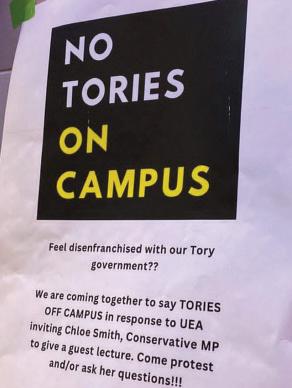 Jamie Bryson News Editor
Jamie Bryson News Editor
On Friday 14th of October
UEA hosted Chloe Smith - Conservative MP for Norwich North - for a guest lecture as part of the annual ‘PPL Fest’.
Ms Smith - then Secretary of State for the Department of Work and Pensions - gave a short guest lecture on her personal journey to, and experiences within Westminster politics.

The event took place at a time of significant political upheaval, with the previous Tory administration (under Liz Truss) announcing their now scrapped “mini-budget” just over two weeks beforehand.
Whilst the event proceeded as expected - with some students choosing to peacefully protest against Smith’s government - Concrete has since been made aware of several complaints made by students over a poster erected across campus prior to the event entitled ‘No Tories on Campus’ (pictured top right).
allowed to be put up on campus:
When was society first made aware of the poster?
“A society member sent a photo of a poster they had just seen in the Julian Study Centre on the evening of Thursday 13th of October. As soon as we were made aware of the posters, I contacted the SU.”
What are the society's main points of complaint?
“Posters with a clear message that individuals with a particular political viewpoint are somehow not allowed to even be on campus is completely undemocratic, intolerant and it just stifles debateprinciples that we would expect the SU to counter. I’m all in favour of the right to protest - that’s fine - but any suggestion of ‘de-platforming’ is not acceptable on campus”
Asked about the wording of the publication, Oscar added, “It was the tone and potential implications of the language that was the main cause of concern‘No Tories on Campus’ in big letters was the first thing you saw. Chloe Smith came here to give a talk and take questions; if people want to come and disagree and challenge her."
Concrete put these concerns directly to Serene ShibliSexton - the SU’s fulltime Campaign’s and Democracy Officer:
Was the poster authorised by the SU?
“No it wasn't - it was a student poster which is allowed to be put up without authorisation. We were aware something was going to take place. As long as students don’t break the SU’s code of conduct, we can’t control what they’re going to publish”
"It's not a democracy issue for us specifically that this was done. It is a welfare issue because students were upset by it and therefore we will deal with the fact that they're upset. It would only be a democracy issue if the protestors were going through the SU, which they weren’t”
Asked to reflect on the fact that multiple official complaints had not yet received a response from the SU over two weeks on, Serene said, “If they’ve made an official complaint then that will be dealt with."
In the interest of open student debate and transparancy, Concrete reached out to one such complainant, Oscar Housego, Treasurer of UEA’s Conservative Association, to discuss why he and his society felt it was wrong that these posters were
"I obviously have no problem with thatshe’s an MP, that’s what they’re there for. Saying she shouldn’t have been given a platform and listened to in the first place - that’s a disgrace.”



At the time of going to print (Friday 4th November), Oscar and others have yet to receive a response to their official complaints.
What’s your response to complaints that the language used in this poster was “undemocratic, intolerant and stifles debate”?
“All official complaints will of course be dealt with through the official process; I can’t comment on ongoing complaints. A disciplinary panel would decide whether any codes of conduct were broken."
"The SU are very busy and are underfunded - if we had more staff to deal with such complaints quicker, I’m sure this would be dealt with quicker, but I believe there is a plan underway to make the process more efficient”.
The SU’s Code of Conduct can be accessed by searching ‘members code of conduct’ on ueasu.org and details of freedom of speech and protest definitions can be found under clause 12.10. If you have any queries about the Code, you can contact Tony Moore, at anthony.moore@uea. ac.uk
"I'm all in favour of the right to protest, but any suggestion of 'de-platforming' is not acceptable"
"students were upset by it and therfore we will deal with the fact they're upset"
"The SU are very busy and are underfunded"
It’s the time of year where we say goodbye to the hot summer weather and brace ourselves for the lashing winds, biblical rainfall and the leafy sediment that lines the streets of campus and the city. It’s getting darker much earlier and your bed is looking much more appealing than that 9am seminar. It almost feels as though walking anywhere is more time and energyconsuming.
There is no doubt that the autumn season is a journey for one’s senses;
the vibrant colours found in every corner, the sounds of jubilation in its many holidays across the world… No matter where you go, there’s something bold and beautiful offered only this time of year, so why does it feel so difficult to go about our daily lives?
The cold and wet climate begins to provoke seasonal depression for many at this time of year, and that is okay. It’s okay to find it hard to be consistently productive especially during a time where your workload is likely ramping up towards the beginning of your second semester. Fortunately, the UEA has
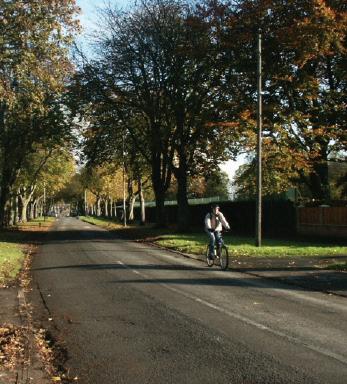
many provisions that support students if they’re feeling under the weather as you’ll find further on in this section.
There is also a lot of information in this section about important decisions our first-year readers will be making as they approach the beginning of their second academic year at the University, such as accommodation and money management in increasingly turbulent times. Read on and perhaps, you’ll find something that could prove helpful as we face uncertainty in the days ahead.
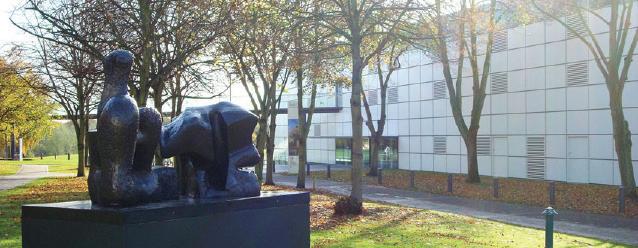 Alexandra Ashby HOTW Senior Writer
Alexandra Ashby HOTW Senior Writer
For many years, the students of the UEA have committed themselves to the progress of social change to create a safe and empowering environment for all who are part of their world. One such endeavour is the Aurora Alliance that forms the European Universities Partnership with 9 other universities in Europe. As part of their mission statement, Aurora describes itself as “a consortium of researchintensive universities deeply committed to the social impact of our activities, and with a history of engagement
with our communities” with a mission to enhance academic excellence to influence societal change, and achieving it through research and educational activities, with the ultimate achievement of the sustainable development goals of United Nations. At UEA, we are lucky enough to have access to the vast range of opportunities Aurora provides.
The Aurora Student Council is a great way to get involved with the scheme. Two delegates are selected to represent their university at biannual meetings, with students outlining their visions and goals for the
academic year which reflect the ambitions of the network. Aurora student schemes are another way to be a part of their mission. This role serves to promote the values of sustainable development through social change. Upon enrolment, you are equipped with relevant training and then are able to choose
the areas of which part of Aurora you align with. If you would like to register interest in becoming Aurora Ambassador for the 2022-23, head on over to the Aurora website on the UEA homepage and complete the application form. Furthermore, you can also become an Aurora Student Champions Scheme, this means being interested in the UN’s Sustainable Development Goals (SDGs). These values include bringing internationalisation to the classroom and an interest in representing UEA.
These include workshops or abroad events online and in person, so it’s whatever
suits you! Currently, Aurora is unknown to many students and researchers here on campus, meaning the opportunities available are being missed. If this line of societal change is something you feel passionately about, there are two online conferences for 2 days on the 9th and 10th November. The in-person workshop at UEA inviting the staff from other Aurora partner universities are between 21st and 25th November as well. The exciting part being that Aurora’s workshops are partnered with other universities in all parts of the globe, such as Iceland and Amsterdam.

“A consortium of researchintensive universities deeply committed to... social impact [and] engagement with out communities”Photo credit: Katy Walters, Wikimedia Commons Photo credit: Wikimedia Commons
As we enter the latter half of the semester, many students will be looking ahead to their summative assessments, and the stress that accompanies the period. I’m sure there will therefore be many students grateful to the UEA library team for implementing the new wellbeing space.

The space can be found on the first floor of the library, in a former silent reading room. It features some comfy seating and low tables, encouraging your mind and body to switch off and take a break. My favourite element
of the space is the multitude of plants! They’re in a lovely wooden effect planter in the centre of the room, providing a border between some of the more formal study desks and some much- needed seretonin.

Plants are known to make us happier and less stressed; this is because they absorb carbon dioxide and release oxygen, making the air cleaner and fresher. Some studies have also suggested indoor plants can improve productivity (up to 15%!) and reduce your stress levels. Other mental well-being spaces and services can be found on campus, including
the quiet zone near scholars in the hive- where you can go for a quick nap or sensory break. Advice:SU are also available for more specific support, whilst our very own Agony Anne Glia is always open to submissions.
The student information zone on The Street is also available from 9am to 5pm and the team there would be more than happy to direct you to relevant support. Your advisor is also there to support you, especially academically. Why not drop into the library head-space and give it a try?!

On the 25th of October, three exchange students from Melbourne, Australia helped push a broken-down car, with its driver, a mile up the A11 to get the traffic moving again. As the A11 is currently a single carriageway, due to roadworks, once the car broke down there was quickly a massive tailback. The roadworks have been in place on the A11 since October of last year and won’t be completed until May 2022. This is
to resurface the A11 due to safety reasons, as well as making them better to drive on. Katy Jon Went, was about 10 cars behind the Ford Fiesta that broke down, and she walked along the line of stopped cars asking if anyone could help, and the exchange students agreed. Once they got a mile up the road, a roadworker was able to remove a barrier to allow the car to exit the carriageway. The three exchange students, by the names of Axel Blitzman (20), Lachlan Salvador (19) and Ace Lin (23), had arrived in Norfolk in order to
At first, they were told, that due to the one lane section of the roadwork being nine miles long, they might have to push it several miles. However, the students got lucky after
a mile with roadworkers allowing them to use the rescue truck off the lane. Lachlan Salvador said that ‘The whole experience was surreal, but we want to make the most of our time in Norwich and thought ‘why not? We really enjoyed being clapped by the locals, it made us feel welcomed and Norwich seems like a really nice community.’
Lewis Sillett, who is the part of the study abroad team and acting as the Global Programmes officer at the University of East Anglia, said that the exchange students
are usually paired with local businesses, and ‘We don’t normally include pushing cars as part of the programme but the can-do spirit and willingness to muck in from these guys meant they voluntarily added the experience as part of their trip’. UEA also tweeted out their admiration for the three exchange students, saying “Good news Monday. On the weekend, Australian UEA exchange students Lachlan, Axel and Ace saved the day by pushing a broken-down car nearly a mile up the A11 dual carriageway! Even with jetlag!’
You’ve been in dorms for two months now, and, if you’re anything like I was, you’ll be eager to get out. The shared kitchen of ten has gotten old and waking up to the cleaner knocking on your bedroom door has become less of a privilege. You’ll have bonded with some of your housemates or someone on your course. But don’t succumb to pressure.
Whilst the temptation is there to find a house now with the first group of friends you’ve made, stay calm. There are plenty of amazing houses in Norwich, and most landlords don’t start advertising their space until after Christmas – so don’t move too soon!
The last thing you want to do is get tied up with a group you don’t actually know.
But that doesn’t mean you can’t start thinking about the best places to look. I’m in my MA year now, so I’ve had three years of searching for accommodation. I fell into the trap of jumping at the first place I could find, and I ended up in a far-too expensive place where I couldn’t even live (with my second year being completely taken over by Covid).
So, where is the best place to look?
If you want to be confident that you won’t be taken advantage of by your landlord, I can’t recommend Homerun enough. The landlords on this site are properly vetted by the SU

Advice and Housing desk, meaning the properties online are advertised as accurately as possible.
Finding a house couldn’t be easier with this site – you can filter whether you’re student, staff, whether you’re a smoker or whether you have disabilities. It means you can find a place that’s truly compatible with you. Alongside this you can find a single room, or a house for you and your friends – so you don’t have to worry if you haven’t found your people yet! There are options to edit your max rent, and your ‘available from’ date.
So, if you’re not wanting to break your bank, or if you’re wanting to go home for the summer without spending money on a room you’re not going to live in, don’t worry.
 Alexandra Ashby HOTW Senior Writer
Alexandra Ashby HOTW Senior Writer
The cost-of-living crisis is underpinned as the disposable income that has decreased rapidly since 2021; disposable income being income left over after taxes and benefits. The cause of the current cost of living crisis is high inflation overpowering wage and benefits worsened by the tax increases now in place. The government has announced that they will be helping with household bill support.
Irrespective of this, many families are still expected to struggle with household inflation to increase at a faster pace this year.
Financial hardship and university life are no strangers to one another. In more recent events, the cost of living that has impacted the whole of the U.K has exacerbated the struggle students face from a financial perspective at university. The presiding issue being that maintenance loans not reflecting the rising costs in our economy.
The UEA has acted through providing
a food bank for people to use. This comes with positives in the sense that ongoing cost of living crises are being heard, recognised and with actions are being put in place. Yet, there is something to be said about how dire and dystopian it is to live in a world where university students need a food bank. More needs to be addressed on a governmental scale as food banks do not solve the overpowering issue of the cost of living.
students in the cost-of-living crisis provided by the university is the student services fund. This fund is specifically for students struggling to meet basic living costs, as well as costs that are large and unexpected. To get more information on this fund, contact fac@uea.ac.uk for further details. Again, this service is valuable to have given the cost-of-living crisis but saddening that university students are at this point. Financial hardship should not burden students to this capacity.
The cost-of-living crisis has also taken a mental and emotional toll
for many students with regards to the continuance of their studies. According to Norwich Evening News, a shocking four in five students have considered dropping out of university. This is due to the worry of not being able to financially cover costs with the average maintenance loan.
The depth of financial strain exacerbating emotional stresses of university students highlights the desperate need for attention, clarity, and long-term solutions from both the UEA and U.K government.
The Agatha Christie Double-Bill is a fantastic, fast-paced, fun night out for any fans of mystery, 1930s fashion, or interpersonal drama. The show features two mysteries, both adapted from short story to stage, The Wasp’s Nest in act one and The Yellow Irises in act two each provide different crimes, different suspects, but one detective to solve it all: Hercule Poirot. The Wasp’s Nest brings Poirot to the countryside and right inwbetween a bitter love triangle as he attempts to stop a murder before it’s committed. Meanwhile, in The Yellow Irises, a mysterious phone call summons Poirot to a fashionable London where
a rich American is holding a party to commemorate the death of his wife four years earlier, only the party isn’t quite what it seems…
Both casts and the entire crew have been hard at work in the last weeks, rehearsing and putting all the pieces together. Audiences will enjoy the final product, with period appropriate costumes, production design, as well as music, dancing, and of course, murder!
The Agatha Christie Double-Bill will perform November 10th, 11th, and 12th, at 7:30 p.m. in the UEA wDrama Studio. Tickets are available through the SU website, costing £5 for students and £8 for nonstudents.
Norwich Film Festival - The 10-day film event will show its short film selection, from Friday 11 to Sunday 20 November. Individual events are being held in cinemas across the city, with online access. Tickets starting from £3.

‘Mindfulness and Active Hope’ - Having kicked off on 2nd November, the course is free to attend for UEA students and will run between 6pm and 8pm every Wednesday for six weeks in Earlham Hall on UEA campus in Norwich. If you’re suffering from climate anxiety, and don’t know where to turn, this course is there to support you.
Damn Good Does Disney - Tuesday 8th November, 10:30pm - LCR - £4.50. Dress in your best costume and boogy along to some Disney classics.
Anthony Joseph and Shara McCallum at UEA Live - Anthony Joseph and Shara McCallum, in conversation with Prof Alison Donnell. They will celebrate the release of Anthony’s new poetry collection, Sonnets for Albert, and Shara’s latest book, No Ruined Stone. Lecture Theatre 1 at 7pm on 10th November. From £6.
Spectrum: Throwback Thursday - 10th Nov - 9pm - Blue Bar - UEA’s Signature Queer Club Night is dedicating itself to all things Retro. Dress in your best #tbt fit to begin the celebration.
Of Mythic Worlds - an evening of performance and music, exploring contemporary Afrofuturism and the links to Ancient Egypt. Booking is essential but the event is free. Thursday 10th November from 6pm-8pm at Sainsbury Centre.
True Stories Live: Seven Ages of Woman - an opportunity for women of all experiences to share reflections about their own experiences of womanhood. - 3.30 – 5.30pm at Norwich Arts Center. Pay what you can afford. Continued at 7:30pm by a festival of performance with live happenings and music throughout the venue. 13th November
Norwich Christmas Lights and Festive Fair at the Forum - The ever popular Tunnel of Light makes a welcome return with more gorgeous patterns to enjoy this year than ever before. Plus, there will be breathtaking projections on Norwich Castle. All beginning from 17th November.
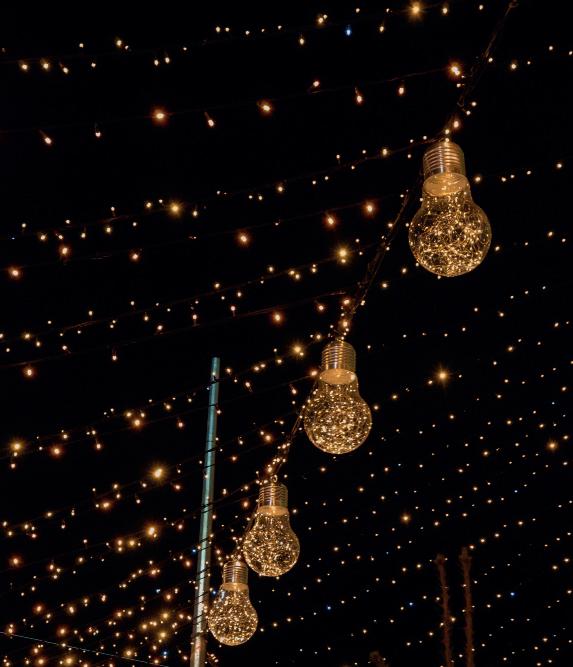
Thank You For The Music - ABBA Tribute - Rock up to Epic Studios to sing and boogie along to this touring tribute group. Doors open at 7:30pm on the 17th November. Tickets at £25.
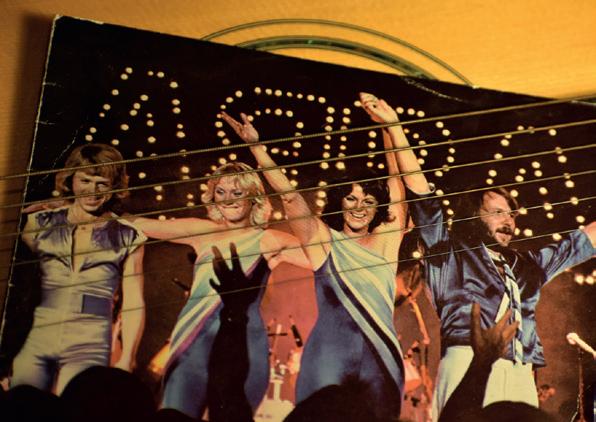
Women Poet’s Festival - A one-day hybrid festival celebrating women poets and announcing the winners of the 2022 Women Poets Prize. Taking place at the National Centre for writing on 19th Nov from 9:30am. Tickets from £11.37

Source: All images from Unsplash
The Singh Twins: Slaves of Fashion - At Norwich Castle and East Gallery - the exploration of Indian textiles, and how the rich history can correlate to the world today.
Cavetown - Waterfront - Tuesday 22 november 2022, 7:30pm - 10pm - Cavetown will be hosting a special album launch show at The Waterfront to celebrate the release of their latest album, ‘worm food’! General admission - £13. Event + CD - £16.50.
Bongo’s Bingo - A mix of traditional bingo, dance offs amd audience participation. It’s a bingo experience you’ll never forget. At Epic Studios on 25th and 26th November. Doors open at 6pm and tickets are at £14.
Festive Fair at the Forum - Bringing in traders and locals, the fair is open from Friday 24th to Sunday 27th. With stalls selling everything from jewellery and pottery, to Christmas decorations and chocolates.
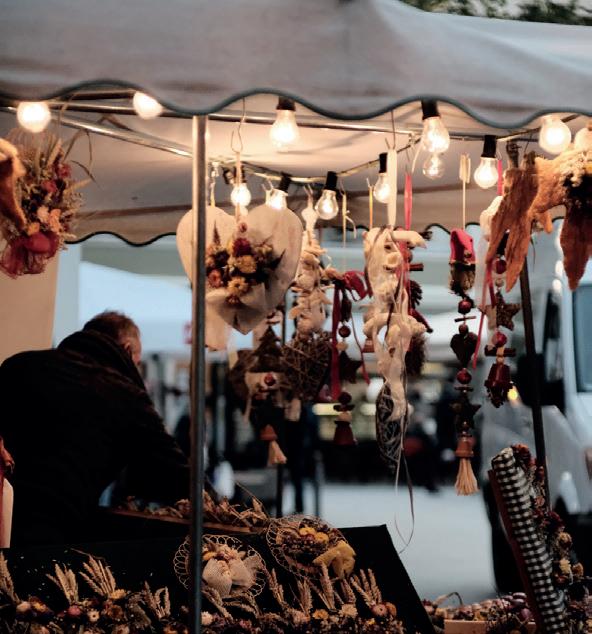
Fierce Babe Christmas Market - With over 25 indie makers and creators who identify as women, trans, or part of the LGBTQ+ community, this is the place to find something special in a welcoming and inclusive space. The Assembly House, 27 November 2022 at 11:00 am.
An evening of Terry Pratchett, with Rob Wilkins - Wednesday 30th November 2022. 19:00 at Waterstones, Norwich - Castle Street Rob will be reminiscing about times good and bad, drawing on Pratchett’s own notes as well as interviews with those close to the late writer. Admission only - £5, Admission + Book - £20
NightFair Before Christmas - Craft fair celebrating the mystical. From entomology and taxidermy to jewellery and gothic decor. On the 2nd and 3rd December at The Halls.
City of Literature Publishing Fair - Drop in and celebrate independent publishing culture at the Christmas edition of the City of Literature Publishing Fair. Meet the publishers, browse and purchase their work, and take part in interactive sessions. The perfect weekend event for writers, readers, editors and creators of all kinds. It’s free to all at Dragon Hall on 3rd December from 10am.
Holly Humberstone - Saturday 03 December 2022, 6:30pm - 10pm£19.50 - Holly Humberstone returns from her tour with Olivia Rodrigo. She’ll be making her way through her very own tour, making a stop at our very own LCR.
Signing with Joe Tracini - Sunday 4th December 2022 - 15:00 at Waterstones, Norwich - Castle Street - The actor and social media star will be signing copies of his biography, where he recounts his experiences of living with Borderline Personality Disorder in an accessible and entertaining manner.
 Emma Darlington Global Writer
Emma Darlington Global Writer
“FIFA is committed to respecting all internationally recognized human rights and shall strive to promote the protection of these rights”. Yet according to Amnesty International, 6,500 migrant workers died during the construction of the World Cup stadium - where was their protection? Who is taking responsibility for this atrocity? Migrant workers are among the most vulnerable groups on the international stage and are therefore easily exploited by employers. With families relying on them for remittances for a variety of reasons including education, healthcare, rent and basic survival they are often left with no choice but to accept a very low pay and dangerous working conditions.
The World Cup will kick off later this month with billions of people across the world coming together to support their national sides. Qatar has a large population of migrant workers, consisting around 80% of the total population.
The World Cup is estimated to cost around $200 billion for the range of sporting facilities and infrastructure required (Thani, 2021) including 8 new stadiums and the 1.5 million migrant workers to make it a reality.
There has been furious discussion since Qatar was awarded the World Cup back in 2010. Not only does it possess extreme
Globaltemperatures and a surface area smaller than the county of Yorkshire, but it also
considered. Despite many reforms, why have migrant workers still not been paid
of low-skilled workers. With many NGOs, naming and shaming Qatar, its international reputation is at stake. With signs of corruption already prior to Qatar being elected to host the World Cup, one may wonder how truly equitable FIFA is. There are claims that the former FIFA vice president Mohammed Bin Hammam distributed more than 5 million dollars in cash to African officials to win over votes.
However, with globalisation at its peak the ability to outsource consumer goods and labour at a cheap price has increased exponentially. With both private actors and organizations profiting from this, they are not exempt from taking responsibility. This is not the first-time sports tournaments have continued in countries that do not respect human rights for example the 1978 world cup in Argentina, during a military coup and then 2018 in Russia. In all these cases FIFA should of used its power to ensure host countries act in accordance with human rights standards, and prohibited the sporting tournaments from occurring within their boundaries.
has a very poor record on upholding human rights.
Low-wage migrant workers have routinely been exploited under the Kafala system in which employers are granted almost full control over the lives of their workers sharing similarities with modern slavery practices of forced labour according to the International Labour Organization (ILO).
Up until 2015, the Kafala system was dominant within Qatar. One may argue that the World Cup has permitted Qatar to reform its existing system, where basic human rights were barely
for their labour? Why have conditions still not improved? Why are they still dying?
“Sports washing” refers to the use of sports to improve reputations tarnished by malpractice. Many countries want to take part in hosting major sporting events to deter attention from the issues at stake within their country, to leverage their soft power through creating a positive legacy for themselves. While this may have been Qatar’s initial aim they are now heading in the opposite direction, with global attention diverted towards the human right violations
The protection of migrant workers is a major challenge, not only for governments hosting them, but their country of origin and the multinational companies which are employing them.
There is a strong argument that it is Qatar who holds the brunt and responsibility of providing humane working conditions for their workers. While legally companies have a set of guiding principles that they must follow to ensure human rights are being respected, the means of enforcing their principals is left to the national government to decide (Nolan & Farbenblum, 2014).
To summarise, not enough is being done. Changes have been made on paper but not on the ground. Abuses are stil ongoing; migrant workers are still dying. Pressure it being pushed from countries such as Germany, Denmark, France, and Australia. For example, various cities in France have decided not to promote the world cup in order protest against Qatar human rights violations. Several players such as Riku Riski from Finland refused to participate in the qualifiers out of principle. With FIFA not taking enough responsibility, there may be only way for football players and supporters to use their collective weight to prevent the worst excesses of FIFA in the future – a boycott.
Catalonia’s Government collapsed on the 7th of October after the centre-right Junts party voted to leave the coalition with the Republican Left.
The two pro-independence parties that formed their coalition Government following the 2021 regional elections have long had their disagreements. The Republican Left supports achieving more devolution and an independence referendum via negotiating with the Spanish Government, while Junts, the party who attempted to hold a referendum in 2017 and secede from the country,
supports a more hardline and unilateral approach to achieving Catalan independence.
This antagonism between the two parties grew to a breaking point during the first week of October when the Catalan president and Republican Left leader, Pere Aragonès, sacked his Junts deputy, Jordi Puigneró, after it was revealed that Junts were planning to call for a vote of no confidence in the Government. Following this sacking, Junts members voted on whether to leave or stay with the Government, with 55.7% voting for the former.
Despite the Republican Left only having 33 of the 135 seats
in the Catalan Parliament, Aragonès ruled out a new regional election, reshuffling his cabinet and running a minority Government instead. Four new ministers have been appointed from the Republican Left party, while three others have come from other pro-independence parties.
However, while the Government survived, Aragonès will still need to find support elsewhere in order to pass key policies such as the regional budget. The most likely option is Pedro Sanchez’s socialists who have a large seat presence in the Catalan Parliament and align with the Republican Left on many economic issues.
This however would likely cause a further rift between the two parties considering Junts already strongly criticise the Republican Left for backing Sanchez’s national Government despite what they see as no progress in achieving a legal independence referendum or more devolution...
This rift is happening at a bad time for the two proindependence parties. According to recent nationwide polls, the right-wing parties look on track to win the next election which must be held by December 2023.
Pedro Sanchez’s socialist party has dropped to 25% in October polling, while the
conservative Partido Popular and the far-right Vox are on 32% and 15% respectively.
It was a Partido Popular Government that suspended Catalan home rule and tried prosecuting separatist leaders following the independence referendum in 2017. Vox is a party that stands on a platform of centralisation and abolishing all regional autonomies.
While the Republican Left and Junts have their disagreements, one thing they can both agree on is that a Partido PopularVox Government would be very bad for their proindependence cause.
Last month, at the Chinese Communist Party’s (CCP) twentieth congress, it was confirmed that Xi Jinping - the increasingly paramount world leader - would serve a third term as the country’s President. In a historic break from the two-consecutive-term limit put in place by Deng Xiaoping in 1982, Xi will also remain General Secretary of the CCP and head of the armed forces.
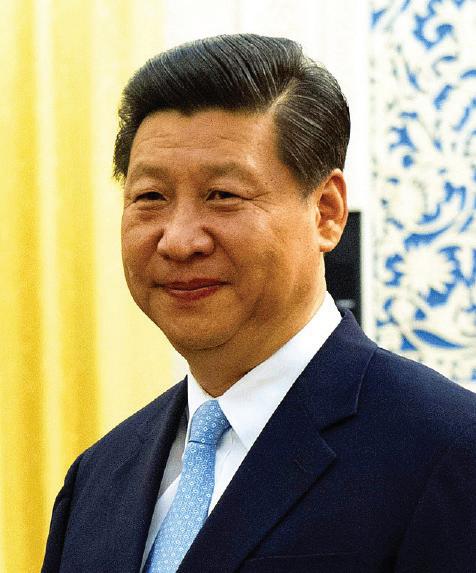
Although very few policy announcements emerged at the congress, the onceevery-five-year event marks a symbolic meeting of the CCP’s ‘top brass’. It allows for personnel changes and the cementing of foreign and domestic priorities. Notable changes last month included the appointment of seven of Xi’s most loyal subjects to the party’s ‘Politburo Standing Committee’ - an exclusive group representing the apex of Chinese political powerand the forcing out of personal rivals of Xi, including Premier Li Keqianh, who is seen as too economically liberal for the CCP’s evermore protectionist aims. Furthermore, for the first time in 25 years, no women will be sitting on the 25-member Politburo - the third level of the party’s structure.
From a global perspective, the
congress’s ‘Work report’ looks to be the party’s most ideological since the days of Chairman Mao Zedong - the violent communist revolutionary and founder of the People’s Republic of China (PRC). The Prime Minister of Australia, Kevin Rudd, described its foreign policy aims as laying bare “an aggressive and statist worldview” and emphasised an evermore “Marxist-Leninist” perspective in China’s aim to become the leading world power by 2050. Such policies include pursuing the ‘One China’ policy, in which the CCP claims the island of Taiwan to be “a hemogenic and rightful” part of the country. As pointed out by leading academic Matthew Blasey, however, Taiwan is simply the “first island chain” in a strategic Pacific military position, possessing substantial economic opportunity, with the island nation holding 56% of the global semiconductor chip market.
Closer to home, a report published last month by Safeguard Defenders - a human rights organisation based in Madrid - has revealed internal evidence of two CCP ‘secret police stations’ in London and Glasgow. It claims the sites are being used as undocumented police hubs to silence Chinese “dissenters” and “force them to return home”. A further 52 sites have been identified
across the globe, with Beijing claiming they are legal centres tackling “transnational fraud” by Chinese people living overseas. MPs representing the China Research Group have since called on the British government to open an urgent investigation into the findings, stating, “A Chinese government official reportedly admitted the role of these stations as ‘pressuring criminals’ to return to China. These ‘criminals’ could be Hongkongers, Uighur Muslims, dissidents or indeed anyone who has dared to criticise the Chinese Communist Party”. A government spokesman responded that the claims were “very concerning” and that “Any foreign country operating on UK soil must abide by UK law”. The findings follow clips of a UK passport holder from Hong Kong being beaten and pulled to the ground by a CCP official at a peaceful protest outside the Chinese consulate in Manchester earlier in October
Lastly, geopolitical tensions are being seen across Western Europe as individual countries debate balancing the demands of the energy crisis with reliance on Chinese infrastructure. In particular, strategic energy ties between Germany and France have been at the centre of the EU’s economy and security for decades. Alarm by industry leaders was raised,
Iran’s recent political conundrum began with the brutal death of Mahsa Amini.
The 22-year woman was in the custody of Iran’s morality police at the time of her demise.
She had been charged in violation of Iranian laws restricting all women to cover their heads with a hijab or a headscarf.
According to BBC and other sources Mahsa Amini was beaten with a baton by the police, but government officials
continue to assert cardiac arrest was the real reason behind her death.
The uncertainty of the death may have played the role of a catalyst to enrage the people, especially the more progressive actors, to organise protests.
Unfortunately, the protests have taken a huge toll on the population of Iran - The Guardian has confirmed that 250 people have lost their lives so far.
Furthermore, Commander of Iran’s Revolutionary Guards Hossein Salami and other Iranian government officials
have also accused the United States and Israel of interfering during this political and social schism.
Kaitlan Collins, a CNN correspondent, has stated the Biden administration is standing in support of the demonstrators against the status quo mindset.
Time will tell us if the protests triumph in their objective but during the policy process, culture plays a pivotal role.
If the Iranian government amends its laws, it can influence societal norms.
But some people believe
it is unlikely that the protests would bring a revolution or societal change due to the resistance of Iran’s Revolutionary Guards.
Patrick Wintour from the Guardian writes about Iran, “The baton, censorship and the police cell has a long and successful track record of violently quelling dissent”.
But if the authorities seek to end to the conflict by increasing their crackdown even further, it will come at a cost.
In order to deescalate the situation and minimise the
repercussions, Iran’s policy actors should work efficiently in a bipartisan manner.
Increasing the accountability of institutions can augment their efforts in such trying times whilst curtailing the chances of a recurrence.
The international community may mediate dialogues between protesters and government officials which can also be beneficial in this intricate crisis but holding the people involved in Mahsa Amini’s death responsible is key.
I spoke to Simon Jones, the Chairman of Norwich Conservative Federation. He explained his role is completely voluntary- he’s in charge of party discipline and strategising for local elections.
I asked how much recent party politics may impact local elections, to which he kindly gave the example of the lost district council seat of Thorpe North-West. He explained they are “rightly being punished” for the “chaos” caused by Truss’ time in office.

At the time of the interview, PM Rishi Sunak had stated he would not attend COP:27, this decision has now been reversed. However, Simon explained Rishi “probably feels there are more important things in the UK right now” and that “we have done a fantastic job on the environment, reducing our carbon emissions by 50%”.
- - -
I asked the same question to each party representative: “So many, including UEA students, are facing choices between making rent payments, paying their bills and eating well. Do Norwich Conservatives have any support in place our readers might benefit from being aware of?”
Simon explained “sometimes we have to make choices between what we can afford”, and hoped that the “Students Union is helping”. He expanded on his view, by expressing his sympathies for the Ukrainian population, stating we must remember “they are dying”. When I questioned why Sunak’s COP decision is presumed to be because of a focus on domestic issues but instead of tackling the cost of living crisis, we must think of those suffering overseas he asked “Is it the responsibility of government to deal with every situation that arises?”
- - -
I questioned more specifically about his view on student support within this, and his thoughts on upcoming strike action. He was incredibly insightful in his response, explaining he questioned the entire university system, especially its finances. Many students may resonate with his next comment: “Why does the Vice-Chancellor of UEA get a house paid for by you?”. His view is that if strike action results in better pay for academic staff, the quality of teaching should increase- in this he highlights a “link missing” between education quality, teaching hours and the £9,250/yr price tag of many degrees.
- - -
This issue, I wanted to clear the murky waters of current political events and find out how it all relates to local students.
I first interviewed Jamie Osborn, Green city councillor, referencing the Norwich Green Party website which states “Green priorities include tackling the cost of living crisis and rising fuel bills by insulating homes and installing renewable energy sources such as solar panels and air source heat pumps.” I asked if this is still a green priority, and how they plan to achieve this and incentivise taxpayers to invest in these greener sources. Jamie said it “absolutely” is still a priority, but that “most people can’t afford to isolate the house or install a heat pump, or put solar panels on their roof. So there needs to be government support. Other European countries are doing that. Germany, where Greens are in government, recently announced a €56 billion program of insulating houses in Italy.” He argues this would ensure home grown energy, which is not dependent on wholesale, and that the most in need households would get the most help.
- - -
I asked Jamie about PM Rishi Sunak’s decision not to go to COP:27, (to which he now plans to go), he responded: “public concern about climate change is at record levels”, he highlighted a recent poll which said it was a concern for 74%, whilst cost of living was at a similar level at 79%. He argues “no other parties” are dealing with this as holistically as the Greens. When asked what the other parties could do better, he explained the need for commitments about how to deliver windfall tax, and the nationalisation of energy. He also stated “we’re talking about 100 billion every year for the climate emergency for the next 10 years to make sure that we are insulating houses starting from the ground up, we need to be working with the unions.”
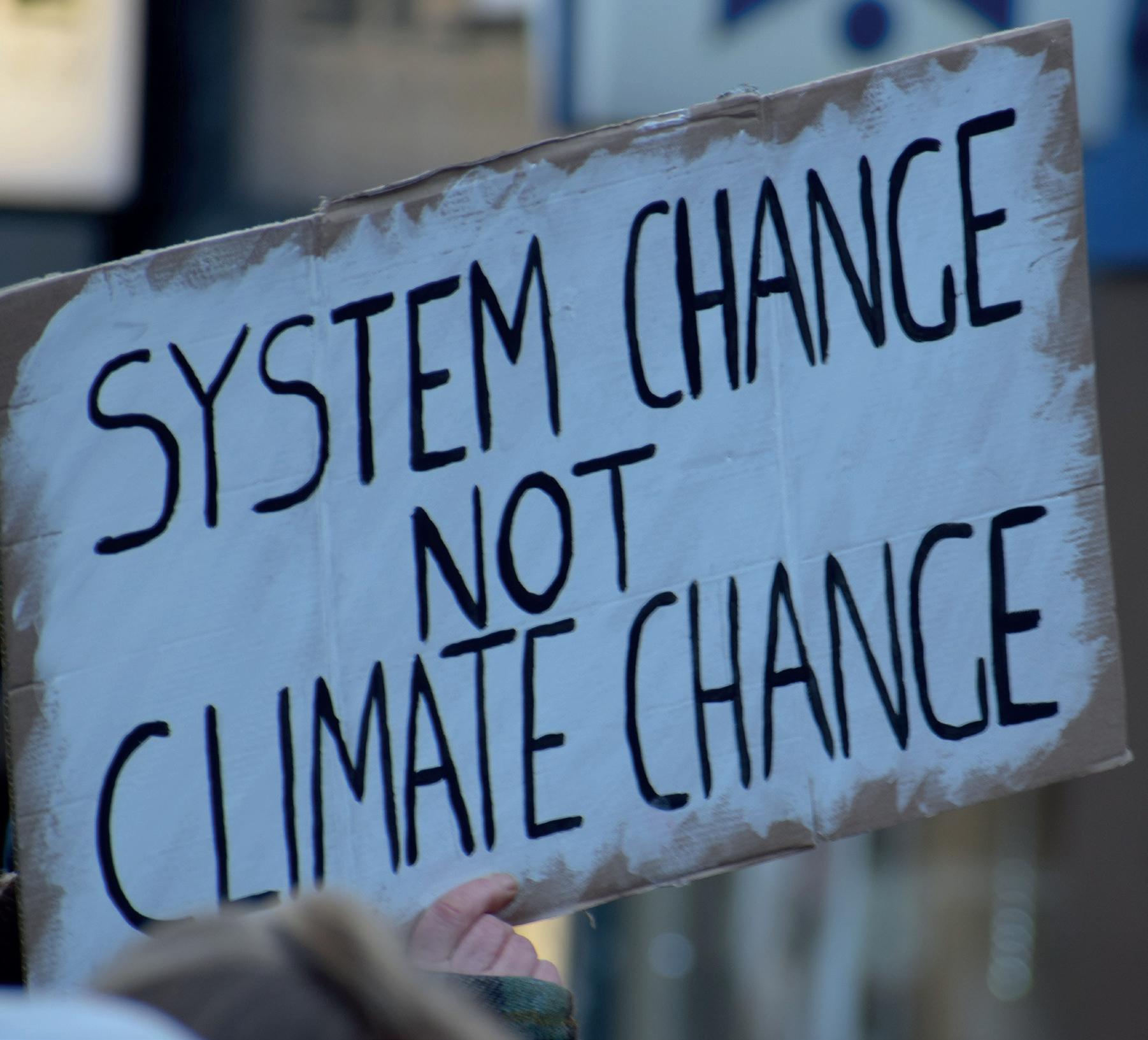
- - -
My next question I asked all part representatives, “UEA students, are facing choices between making rent payments, paying their bills and eating well. Do the Norwich City Green councilors have any support in place our readers might benefit from being aware of?”
Jamie highlighted the Norfolk Assistance Scheme, which “to offer support to people who were previously supported by those elements of the Social Fund no longer administered by the Department for Work and Pensions”. In addition, he sign-posted local foodbanks- including the recently established one here on campus.
When I asked him more specifically about support for students, he explained the need for “rent caps” and “more affordable housing provision”, especially on student properties where landlords often take advantage.
As covered in our News section this issue, Chloe Smith visited the UEA campus last month and received a mixed reception, with some students protesting the visit supposedly due to various actions she took as the Secretary of State for Work and Pensions. I asked Simon if he thought those protests were justified. He responded, “everyone has the right to peaceful protest”, though he has an “issue” with “trying to ban people with difficult views”. He explained he thinks it’s important to “guard against” those censoring these types of views and events.
He also linked this vein of thought to soundbite politics and described his “problem” with phrases such as “heating or eating”. He concluded, “we have lost the art of disagreeing.”



- - -
I also asked Simon his thoughts on the current electoral system. He explained why he supported it, and was against proportional representation as “you don’t get a stable government” and argues “it allows extremist parties to get in power”, for example ”UKIP didn’t get a single seat but if proportinal representation was in place would have over 100 MPs.”
He did say “the mayoral system is fantastic” and he would like to see it implemented in Norfolk. “What happens now is the council is forced to do what the government (in London) want us to do...the number of times St Stephenson St. has been dug up is rediculous.”
Further to this, he explained “Norwich is not a standalone entity. It can’t exist without Norfolk. They need to be talked about together.”
“public concern about climate change is at record levels.”Image: Unsplash
“we have lost the
concrete-online.co.uk/category/features/
I also spoke to Laura McCartney-Gray, President of the Norwich Labour Party. She kindly began “times are tough”, in response to my question about the message of ‘growth’ both the government and the opposition are currently pedalling as a way out of the economic crisis we find ourselves in. I asked how this growth will look in Norwich, and why Labour are different from the Conservative government.
Laura explained, people are feeling the “effects of the Truss mini budget in September”. So “Labour in Norwich is fighting back with a collaborative and creative municipal socialism. We must not simply manage but transform our local economy in support of working people and their families, promoting forms of economic ownership and activity that are democratic and create and retain wealth locally.”
She set out some points of how they plan to do this, including “promoting trade union recognition across the city, and as a social value outcome in local purchasing”, they “will continue to boost the local economy by seeking to use local suppliers and workers and also help reduce the city’s carbon footprint”, and “continue to work with our local universities and partners to promote Norwich as a global centre for research and public knowledge”. Importantly, their growth plan also includes promoting a Real Living Wage, they have committed to “tripling over the next three years, the number of employers in the city paying the Real Living Wage.” It may be worth investigating this policy for those readers looking for graduate jobs.
- - -
The cost of living crisis has meant many students are faced with the choice between making rent payments, paying their bills and eating well. I asked Laura what support Norwich Labour councillors have in place to help those in need. She provided a link: https://www.norwich.gov.uk/homepage/405/cost_of_living_support/ which many readers may find useful.
I found it particularly interesting that “Norwich is one of the only councils to retain a 100% council tax discount for working age residents, meaning the most financially vulnerable are exempt from paying.”
They will also “maintain and develop [their] popular Switch and Save scheme, which gives better utility prices for Norwich residents and saves thousands of pounds and deliver the White Label Energy Company – ROAR Power – which is a cost neutral, not-for-profit company where all money from referrals goes back into helping those
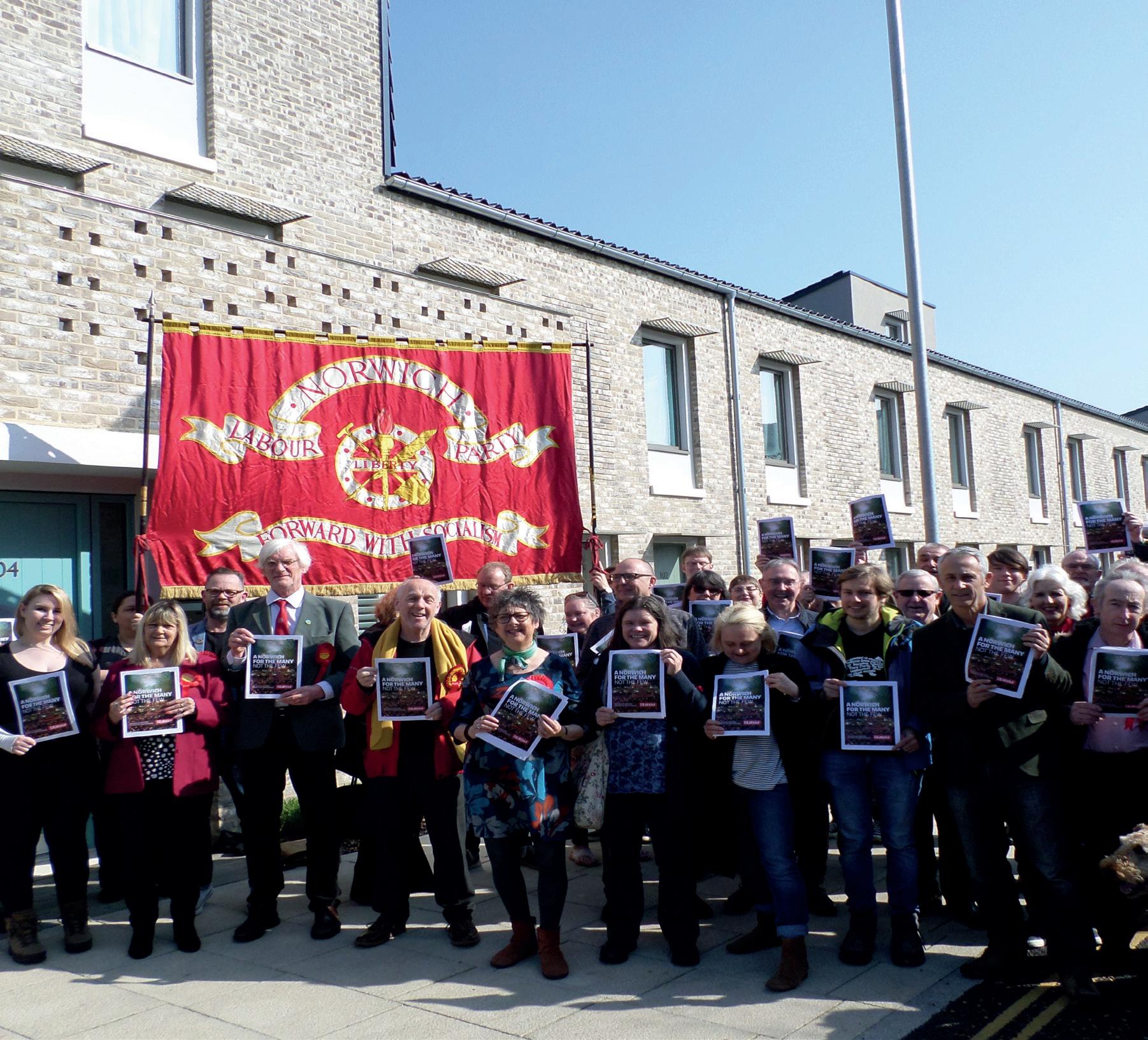
experiencing fuel poverty. Roll out Neighbourhood Food Hubs, (the first being in Lakenham) as a social supermarket aimed at people affected by low income as an alternative to food banks. We aim to expand across all corners of the city.” - - -
What is the Labour view on Graham Plant’s proposal for three nuclear reactors in Norfolk? Does the county need plans like this to sustain its energy demands, especially in the current financial market?
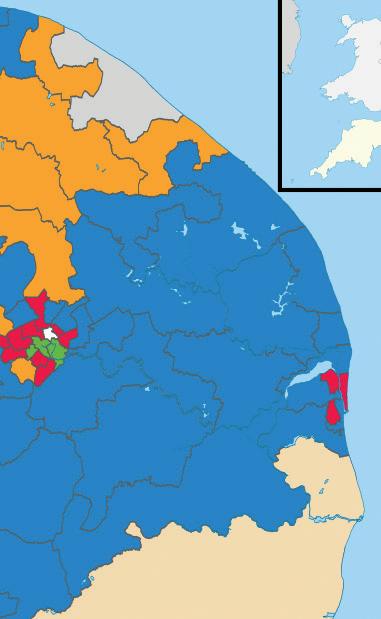
“We oppose the Tory proposal for nuclear reactors in Norfolk. Instead they should lead on the renewable energy agenda, harnessing the opportunities that wind, tide and solar offer the county given its geographic location. Our Labour MP Clive Lewis is bringing a Private Members Bill to Parliament, Energy for all and a retrofit sprint.”
We can compare this response to that of the Conservatives , Simon began by explaining “I care about the environment im passionate about it”, but that “renewables produce about 40% of our electricity but only 12% of our total energy needs”. He furthered by stating he had j ust bought an electric car, “but if everyone did, we just aren’t going to have enough power”. He said “the problem with renewables...solar and wind turbines... is because they are intermittent, they are only for 40% of the time.” Hence, he thinks “nuclear power is the only answer at the moment”. He went as far as to say “its disingenuous of the Greens to say we can live solely on renewables”.

The Greens themselves responded to the question on Plant’s proposal. They state on their website “Greens also want Norwich to become a cleaner city which everyone can enjoy living in.” When asked about the proposal for the three nuclear reactors, Jamie informe d us Plant’s proposal was actually a response to his own amendment to the County Council, “in a debate saying they should be talking about e nergy efficiency”. He explained that “nuclear is expensive” and “not a quick solution”, saying the “best thing is to invest in renewa bles”.
I want to thank all three hard-working individuals for taking the time to talk with me.


If I were to send the differenversions of my younger selves an update regarding my sexuality, they would have nodded their heads and said, ‘that makes sense’.
A combination of being an introvert, a nasty case of acne and attending a same-sex grammar school didn’t exactly set me up for a life of sexual promiscuity. Growing up, my mindset towards sex was: if it happens, it happens. I didn’t sit around all day thinking about it like some other people my age.
I never had any crushes when I was a teenager, I found most conversations around sex uncomfortable (to a certain extent, I still do) - Puberty was very underwhelming for me.
Whilst most of society is becoming more tolerant of the LGBTQA+ community, yet a lot
of people don’t know that the ‘A’ stands for asexual, not ally. When I first heard the term asexual, I didn’t know what that entailed. It wasn’t until I started watching BoJack Horseman that the asexual character Todd Chavez, voiced by Aaron Paul helped me realise that my sexuality was far deeper than being straight or gay. I thought my indifference and awkwardness surrounding sex was me being weird, but it wasn’t.
After some more digging, I noticed that my attitude towards sex wasn’t changing, and that it felt that everything was oversexualized. I understand that romantic relationships are more valuable and formative than the act of sex, but to me the time people spend obsessing over sex is a little odd. Maybe one day I’ll feel differently, but right now, I’d rather stay at home drinking a hot chocolate, watching Battlestar Galactica, than be thinking about an experience that isn’t all it’s cracked up to be. Given the weight of the expectation levied by society on sex, I can’t help but feel sorry for people obsessing over it to the point they are blinded to
everything else.
I feel that what unites the LGBTQ community, aside from the obvious, is a shared experience of both an internal battle coming to terms with one’s sexuality, and an external battle with unsupportive, hostile peers.
After coming out, I cannot express my utmost respect for those without support networks who are facing this journey by themselves, especially at university. I, however, have not have the odds stacked against me, I have supportive parents and inner circle who I can lean on. This gave me a little bit of imposter syndrome.
I became uncomfortable defining myself as part of the LGBTQ community, since I hadn’t been a victim of queer hate, whereas so many people had. No matter how liberal society becomes, there will be so many queer identities that have or will suffer harassment and discrimination, because that’s of the story of this community – and I felt I had no place being a part of that story.
I turned to a member of the SU team at uni, and they helped me understand massively that all experiences are valid and accepted within the LGBTQ community, and my coming out story wasn’t just good fortune.
My story was a result of countless years of activism, fighting for people like me to live in a more tolerant and inclusive world.
I was raised by parents who supports LGBTQ rights, which was a massive help. For the most part, I’m comfortable identifying as asexual, I’m just not entirely sure about labelling myself as queer.
I’m 21 years old, and since starting university I have found nothing but support and understanding from UEA’s LGBTQ community. My feelings on labelling myself do not reflect my experiences by any means, I just still haven’t completely found my feet, and that’s okay.
I’m still young, and I don’t doubt that one day I’ll know for sure where I stand, but for now I’m still figuring it out.
I don’t know about you, but throughout my life I’ve found that breaking up with a friend has been more painful than with any boyfriend I’ve had. This may be because my longest relationship is literally five months, so maybe I’ve not been with someone long enough to feel the true wrath of the breakup, but with friendships it’s a completely different story.
Recently, I’ve been thinking about why friendship breakups aren’t treated as seriously as romantic breakups, they’re just as painful, if not more, so why is it rarely spoken about?
At this point, in most of our lives, we are either in our twenties or about to enter them, I’m almost 22 and this decade has already started to drag me through the trenches.
It’s a time of constant change, which may mean losing touch with friends.
In the past few years, since I’m not in a place where I want or need romantic partner, I focus a lot of that attention onto my close friends. University has changed the way I look at friendships.
Also, after the pandemic, I’m sure a lot of adults have found forming and maintaining friendships difficult.
At uni, I’ve had this underlying fear of getting too attached to a friend and then losing them like I had in the past.
Throughout secondary school, I would have one best friend, because that’s the way I thought it should be. But I haven’t had one singular best friend for a while
now. Having one best friend that you do everything with can end up being like a toxic relationship that’s hard to get out of – you isolate everyone and are left with nobody.
Back when I first started Secondary school, I ended up latching onto a girl I went to Primary with, because it was all so flipping scary. She was immediately welcomed in with the popular crowd, she was sporty and skinny, and I was the opposite.
I always felt left out of that group because in hindsight, I had nothing in common with those girls, so it was kind of inevitable that me and my best friend wouldn’t last. She messaged me one night saying she didn’t want to be friends, but wouldn’t tell my why, I pressed for an answer I never got.
We didn’t speak for months, but something life-altering happened to her, and she called me, and I answered without hesitating.




That breakup was the first of a few, we went on to hang out a bit in the years that followed
but rarely talk now. When I was 14,
I moved from Essex to Devon. On my first day at my new school, I got put with a group of girls on my first day, they showed me around the school that was far smaller than my previous one.
I met this one girl through this particular group, and it was like a platonic love at first sight.
I immediately took to her because she just seemed so cool, and then that developed into what I thought would be a forever friendship.
We had sleepovers all the time, we went on family staycations together and then almost two years later she started avoiding me.
I confronted her and she told me she didn’t think we should be friends anymore. She moved away from me in all of our lessons we had ogether, and each time it felt like a dagger to my heart.
We reconciled after a few months, I still talk to her, sometimes I run into her when I’m home and we message each other occasionally, but we never went back to being as close as we were.
Still to this day, it was the worst type of breakup that’s ever happened to me, but equally something that had to happen for us to get to where we are now.
“I still haven’t completely found my feet...one day I’ll know for sure where I stand.”
“I feel what unites the LGBTQ cmmunity... is a shared experience.”
“it had to happen for us to get where we are now.”
Friendships, especially female friendships, are so complicated. I drifted apart from my friends in sixth form and have ended up reigniting the friendships I had when I first moved to Devon. I have friends from all different parts of my life, whether it’s uni or from home.
But one thing I’ve learned is that most of the time when a friendship comes to an end, it’s normally not for any other reason than growth. You will end up outgrowing some friends, especially when you’re in your teenage years, but it’s about the experiences and lessons that come with the pain of an ending friendship.
I’m graduating next year, and I know I won’t be as close to my friends here both physically and emotionally, which has been very hard to come to terms with, but it’s inevitable at this time in our lives.
Accepting that, is what will let you grow even more without feeling a need to stay in touch with everyone all the time. The people I don’t talk to everyday are the ones
I’m closest with, I hate the mindset
that you’re only friends with someone if you talk all the time.
Friendships need to be tended to more than romantic relationships sometimes because like Phoebe Buffay once said “boyfriends and girlfriends come and go, but this is for life.” Although it may not be forever, friendships are so crucial.
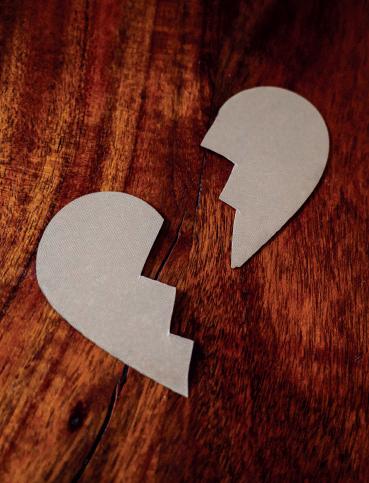
Autumn is the most perfect of all the months,
filled with cinnamon sticks and Halloween! The coldness leaves us a perfect excuse to grab warm blankets, hot cocoa and start rewatching Harry Potter or Twilight for the umpteenth time. Yet, with the nights getting darker, colder, and unpredictable weather, do we really look forward to being drawn into darkness and the inevitable doom of the winter to follow?
My first day back to UEA was a difficult one, crammed with a billion emotions. On the one hand, I regained order in my life, and re-connected with my brain was incredibly comforting. I had been working non-stop over the summer, so having my days split up into education gave me a sense of familiarity, of order in my life. As an
anxious person, this definitely helped, but when I saw the campus, busier and filled up in a way I hadn’t seen before, it flew me into a real panic, of the uncertainties that lay within a world outside of COVID at UEA. What would this mean for me? Would I be made painfully aware of all the social activity I’d missed out on in my first years due to the global pandemic? Would the gentle quiet and mellow ‘liveliness’ that I had enjoyed about campus be overturned by rowdy freshers charging towards their sports nights? Would the one year, that I needed to knuckle down and work hard, I be presented with all the opportunities I’d missed? This filled me with such dread for the year, that I ended up leaving early.
At parts, I was right. I met many freshers who held an entirely different experience to myself, who found people who shared their interests automatically instead of being forced to create serious friendships with their flatmates like I did. This, it seems, had some scary complications down the line. I myself, in second year, noticed I had created seemingly loyal and committed friendships with people who held very little of the same passions as myself. This only became more evident
as societies took away our time until they were only an awkward housemate again, as though I were living in Ziggs again, pettily whispering about mouldy dishes instead of being close enough to simply tell them. I know I am not alone, as a third year who formed their first impression of Norwich and UEA within a snow globe of epidemic exclusion.
Yet, I was also entirely wrong. This vibrant opening of campus also made the part month one of the busiest and most exciting period of my time at UEA. Since this Autumn semester started, I’ve been able to write four articles for Concrete, not including this one, I’ve joined the choir and seen my friends perform in so many shows at The Drama Studio it’s really brightened up these darker evenings. Also, my seminars have been a lot more social, going to the pub and socializing outside of classes, felt like the world for students had just let out an exhilarating gaspAfter holding their breath for the better part of two years. I’ll be able to celebrate Halloween without the looming threat of the pandemic in my mind, and it certainly does provide enough hope and promise
that I can dismiss all my other nerves into post-graduate fears, but that’s for another article.
Recently, my lecturers asked us to pinpoint when attendance drops in the autumn semester, and none of us knew. However, on the first Monday back from reading week, only half of the regulars attended my class. I felt low, especially watching my lecturer wait a couple minutes longer, hoping a flood of students would run through the door if he just waited a couple more minutes. I suppose you might argue this is where seasonal depression sprouts up in students (and hangovers). It’s at this point, we may realise all the promises we made to ourselves at the beginning of term have ultimately fallen through, leaving us with feeling like hopeless failures.
Well of course we’ll feel like we failed - We set ourselves up for it. Even small things, like buying new stationary that we think grants us an entirely new mindset, one that will motivate us to start summatives several weeks in advance, and what not. However, creating ridiculous goals in September, should not be upheld in the darker months of October and November. They’re unrealistic. In just that small amount of time, we will change, and the
real truth is - we will succeed, just in smaller, more significant ways.
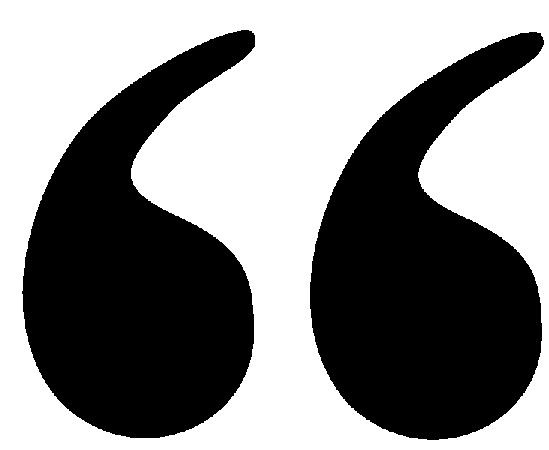

Obviously those that struggle with seasonal depression can’t always narrow it down to one reason they feel down, maybe some people are homesick, or stressing about what to do after graduation for example. I guess, perhaps the reason we’re so split in half with our opinions of these darker months, is because to a student, October really resembles a time of change, and not just for the trees. Whether we like it or not, the autumn breeze will sweep through our sleepy summer lethargy, leaving us scattered and uncertain. So, whether you hate autumn or love it, do not put pressure on yourself and try to find the beauty in the small things like the crunching of fallen leaves, or lighting the new pumpkin-scented candle you bought. Try to relax without feeling bad about it!
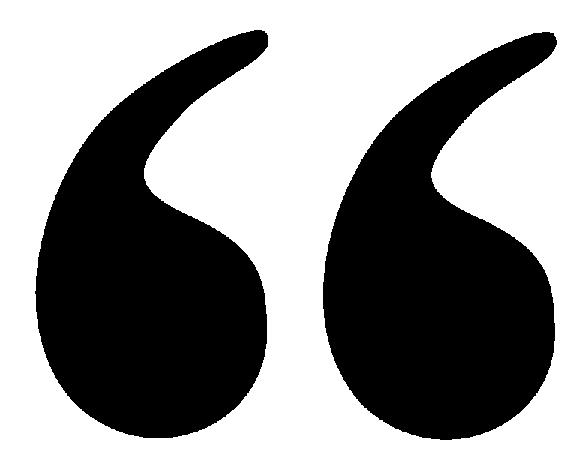
“Do we really look forward to being drawn into the darkness?”
“The real truth is - we will succeed, just in smaller, more significant ways.”
comes to an end, it’s normally not for anyImage: Unsplash
Let’s be honest, it hasn’t exactly been the kind of year where we can take a break from our collective and numerous pressing burdens to focus solely on the grievances of men. We’ve barely even begun to process the cumulative tidal wave of chaos we’ve faced in the past twelve months, so devoting attention to addressing the issues of, among others, cis, white, heterosexual men who benefit the most from the status quo, would only serve to shift attention away from the underprivileged and vulnerable. That being said, men of all groups are also victims of a cold and unsympathetic capitalist society and culture.
To label men as universal beneficiaries of patriarchal institutions is not just ignoring intersectionality (non-white, poorer, non-heterosexual and transgender men who all face their own specific forms
of prejudice and discrimination), but fails to acknowledge that men can be both beneficiaries and casualties of said institutions. The dividing line is often due to intersectionality, but there are also universal injustices suffered by all men such as perpetuated myths and expectations of masculinity, burnout, alienation, and mental health, in addition to a lack of positive role models. The closer you look, the bleaker the picture is.
Unfortunately for men, mainstream conversations on men’s rights are currently dominated by a reactionary anti-feminist culture led by figures such as Jordan Peterson and Andrew Tate –the phenomenon of the ‘manosphere,’ which is about as opposed to positivity and inclusivity as you can get. Their doctrine is a poison pill which will slowly eat away at you from the inside, exploiting legitimate male insecurities and anxieties
stemming from loneliness and societal pressures.This leads to nothing more than the complete annihilation of a once empathetic, intelligent, and passionate human being until all that remains is a black knot of irrational anger and selfdoubt towards oneself. It is a ‘community’ where hate, sex, and power are the dominant narratives, and self-worth is assessed in relation to the pursuit of the latter two goals.
Any sign of vulnerability is quashed by the traditional, hegemonic-masculine Overton-Window of a framework that falls apart the second it is held up to any scrutiny. It is a bogus ideology which seeks to compress and suffocate their followers by insisting they confine their activity and values according to a arbitrary, harmful definition of ‘masculinity,’ which seems to be mostly derived from a sociopathic value system


seeking to severely curtail the gains of the feminist movement and men’s

We need to dispense with the illusion that men are immune from the worst excesses of a capitalist patriarchal society. We are not. But attempting to pin the blame for this on feminism or ‘woke culture’ is a monstrous lie. Men do not need to be liberated from women’s emancipation. Men need to be liberated from the injustices they face as a result of an unjust society and culture, which are often perpetuated by men themselves.
personal choices on how to live their lives. As the rise in violence amongst such communities demonstrates, people perceived as enemies to the movement are also at risk of becoming casualties. Men need a mainstream alternative to such growing toxicity, an ideology that focuses on individual flourishment rather than useless scapegoating.
Solidarity, support, and education – not tribalism – is the way forward. So on November 19th, International Men’s Day, I hope I have convinced you it is worth taking some time out of your day to educate yourself on these issues and understand why we need to eradicate the Men’s Rights movement, and replace it with a more progressive movement we can take pride in: Men’s Liberation.
and sustain the electorate’s support.
If any time is right for Labour to strike, the time is now. Nearly a decade of Tory leadership has passed, only to leave the electorate with the shambles of Brexit, Johnson and Truss. A mockery has been made of the role of Prime Minister, as if the Tories are playing bingo with who is least qualified to go next. But as a result, the potential for a Labour government, or more specifically, for Keir Starmer, to win the next election is at an all time high.
The problem he faces however, is how to focus
The recent Labour Party Conference showed Starmer in a favourable light, with his speech being well-received.
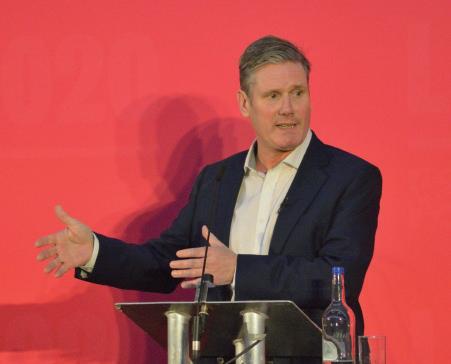
Labour’s focal points were on creating green jobs and industries via their climate investment pledge, as well as buying and selling more in Britain.
In response to the economic chaos of the Tory government, Labour has proposed an Industrial Strategy Council to embed ‘long-termism’ into the economic strategy. These promises along with pledging to introduce proportional representation into Labour’s next manifesto can all be viewed positively. But it is going to take more than promising support for NHS workers and renationalising railways to win people’s support. As other critics have argued, it is essential for Starmer’s campaign to have a strong focus, one that will attract the nation’s attention.
Though Starmer’s approach is as far away from Johnson’s as humanly possible, a strong narrative is what won Johnson the previous election. To succeed, Starmer’s campaign must have a clear message instead of dissolving into a pool of vague promises.
Next to Truss, he represented the just and competent, but next to Rishi Sunak, he faces a bigger challenge. Whilst Sunak is by no means whatsoever the perfect Prime Minister, his policy approach is nowhere near as erratic as either Johnson or Truss.
Starmer must play up the mistakes Sunak previously made as Chancellor under Johnson’s government, as
well as the public perception of him being out of touch (shown by a recent YouGov poll.) He must do so in a way though in which it does not take away from the main message of Labour’s campaign.
The electorate’s opinion of the Government has never been more negative, other than during the height of Covid, and the ongoing cost of living crisis will work in Labour’s favour to garner support. People associate their struggle with Tory leadership, and it is this which Starmer can respond to by claiming that under a Labour government, things will finally change.
“Next to Truss, [Starmer] represented the just and competent, but next to Rishi Sunak, he faces a bigger challenge.”Eve Attwood Comments Editor
“Men need a mainstream alternative to such growing toxicity, an ideology that focuses on individual flourishment rather than useless scapegoating.”Wikimedia Commons Wikimedia Commons
Zan, Zendegi, Azadi.
The three words that have formed the basis of the Iranian protest chants. Zan meaning women – the reason the protests started, but also those at the heart of them. The murder of Mahsa Jhina Amini over an ‘improper hijab’ on September 16th sparked these protests, becoming the first revolution led by women. Zendegi translates to life. Although protests began with women’s rights at its heart, the revolution has grown with a new aim: to free Iran from the Islamic regime. The courage of these women has inspired Iranians who have suffered under the Islamic Republic for 43 years who now demand economic, social, and civil reforms. Azadi means freedom – the ultimate hope of the Iranian people who


now dare to dream of liberty from the oppressive government who changed their country into something unrecognisable and repressive.
Mahsa Jhina Amini was 22 when she was killed – the same age as
apt for those who fail to address oppression faced by women of ethnic minorities.
me. These protests are a feminist movement and yet, the same people who call themselves feminists, posting when Sarah Everard was murdered, when Roe v Wade was passed, are quiet now. White feminists: a term
Before the revolution, the law for Iranian women was one of the most liberal in the Middle East. But under the Islamic State, laws seem to have regressed to the Mediaeval Ages including no protection against domestic violence, no rights to divorce, a ban against dancing or singing publicly, entering stadiums, leaving the country without authorisation from their husband or fathers. The issue that sparked the protests was concerning the hijab law, enforcing all women to cover their heads and bodies from the age of seven. The same young girls who have grown up repressed now take to the streets with the general age of protesters being 15. This is an intergenerational uprising.
It is crucial that people spread awareness and repost about Mahsa Jhina Amini because Khamanei (Supreme leader of Iran) has blocked access to the internet, hoping to silence the voices of Iranian women. Peaceful
outlets to document the horrors happening within Iran.
protests from the people: dancing in public, burning hijabs, cutting hair have been met with rubber bullets, teargas and most recently live rounds. The movement needs those on the outside to spread coverage and encourage media

I am half Iranian and the frustration I have felt at the lack of coverage is constant. But this issue shouldn’t be personal, it has global effects against dictatorships, against men who believe they have the right to tell a woman what she can do with her body. These brave Iranian women have taken their autonomy into their own hands, demanding action, demanding to be heard by not just their dictator, but the world. Mahsa Jhina Amini was the beginning. We should look to the future with hope of Iran being liberated from its religious dictatorship. The actions and determination of the new generation of Iranians have become the new front of feminism.
stand in this fight with the women of Iran: Zan, Zendegi, Azadi. Women, Life, Freedom.
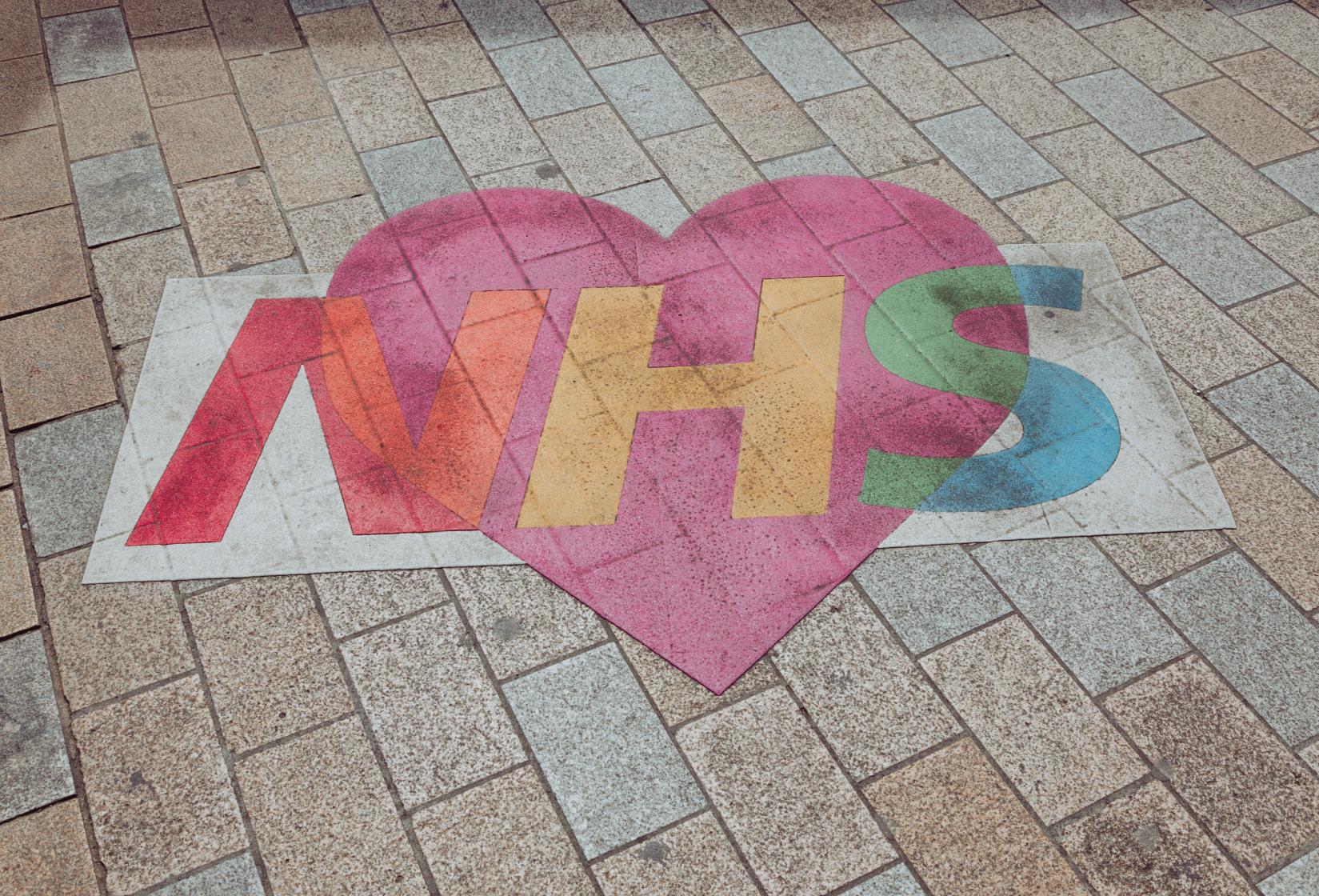 Eve Attwood Comments Editor
Eve Attwood Comments Editor
It has become almost second nature to hear that the NHS is suffering yet another jobs crisis. So much so, that it is as if we no longer know what it’s like to experience an NHS which is not struggling under enormous amounts of pressure. Recent figures from a report by MPs shows that the NHS requires 62, 000 medical professionals to fill vacancies across the UK. The overwhelming reasons for many leaving the NHS are unsurprising: low pay, insufficient working conditions and feeling under enormous pressure everyday. But there’s another strand of this discussion that has been repeatedly ignored: how is the current or ongoing NHS staffing
crisis affecting nursing students, and what are universities doing to support them?
I spoke to a second-year Child Nursing student at UEA who despite having a stressful start to the course, talks enthusiastically about her time on placement and how much she has learnt. Her overwhelming words of praise were for NHS staff who helped facilitate her learning, and her PA who she phoned regularly for words of encouragement during taxing times. She did however detail to me the “lack of support’” received in her first placement from the university, and said this was largely down to “having been given a community placement” which “lacked structure, especially during the height of Covid”. She
talks of there having been “no hospital accommodation” for her to access whilst on this placement, and how when she enquired about accommodation, UEA respondents recommended “Airbnb or Booking. com.” As a result, she had little choice but to live in a caravan alone for three weeks since the placement was in Suffolk and therefore a twohour drive away.
The effects of the current staffing crisis have not gone unnoticed by nursing students, and have a direct impact on the quality of teaching they are receiving. The NHS is suffering delays in emergency departments as well as being unable to move patients to other wards or allowing them to go home on time. Such pressure all around often leaves nurses with no option
but to provide less quality care as there is simply not enough time or resources to go around for every patient. The student I spoke with argued that much of the reason NHS staff are exhausted and burnt out is because they are completing the work alone that should be covered by a team instead. She spoke of people often being unsympathetic to nurses’ complaints, with people responding that nurses choose to go into this line of work, as if this justifies the lack of support from the Government or the rise in NHS staff suffering with their mental health.
A point she made which resonated with me was that nurses are so often overlooked in comparison to doctors. She spoke of nurses being fundamental to the paediatric wards, interacting with patients
and their families far more than the doctors. The perception is often that nurses do nothing but change beds and take people’s temperature all day, but there is far more to the job than is appreciated. It is a role which requires huge amounts of resilience and passion. The student I spoke to emphasised how her knowledge was not spoon-fed, she had to stick to the nurse she shadowed ‘like glue’ in order to competently learn the clinical skills required.
The impact of Covid and a staffing crisis has undoubtedly affected the experiences of student nurses. But despite this, student nurses continue striving to learn and achieve more, even if the Government doesn’t applaud them for it.
I
“Mahsa Jhina Amini was 22 when she was killed - the same age as me.”
“[...] the same people who call themselves feminists, posting when Sarah Everad was murdered[...] are quiet now.”
 Libby Hargreaves Science Writer
Barsted Science Editor
Libby Hargreaves Science Writer
Barsted Science Editor
Rishi Sunak, the new Prime Minister of the UK, has declared a U-turn after previously saying he won’t be attending the COP27 climate summit in Egypt. This comes as news to the international community in fighting the climate crisis with Tory Minister Thérèse Coffey, previously describing the event as just “a gathering of people in Egypt”. Climate experts were largely upset at these actions, feeling that the new government had failed to grasp the scale of catastrophe facing them.
The event hopes to build on the movement made previously in Glasgow at COP26. UN reports say the last 12 months of climate action have been “woefully inadequate”. Initially, it was hoped that the COP27 summit in Cairo could help chart a new course in the battle for the planet. This seems increasingly unlikely as the government seems intent on navel-gazing infighting as a crisis unfolds on a global scale.
It was announced that disgraced former PM Boris Johnson plans to attend in an apparent attempt to bolster his profile on a national stage. There had previously been fury at Liz Truss’s decision to not allow King Charles, a veteran climate campaigner, to travel to Cairo. Sunak has appeared to stick with this
approach, much to the apparent fury of the monarch and climate activists.
The summit in Cairo is likely to be criticised for the amount of air travel and pollution it will cause in bringing global leaders together. Critics of the event are concerned it may just give good publicity to some of the biggest polluters and governments. Being able to wax lyrical about making a difference from comfy conference seats as the sea levels rise. The limit of 1.5℃ for the rise in global temperature is likely to be broken if urgent action isn’t taken.
There is not much time left for the planet as current predictions stand. These events must lead to action. There have been UN talks on the issue of the climate for around 30 years now, and every year fossil fuel usage has risen and CO2 levels have escalated. Words are unlikely to turn into action unless the course is changed quickly. The United Kingdom still has a large influence on the global stage, whether it chooses to use this force for good remains to be seen. If the United Kingdom fails to grasp this opportunity to slow the planet’s descent the alternative is an embarrassing cop-out.
A species of nocturnal primates found in Madagascar has sent scientists on a quest to understand their disgusting habits. The scientists, led by Professor Anne-Claire Fabre, were fascinated by a lemur who was caught picking their nose. Teams at the University of Bern focussed on why it was these lemurs exhibited such behaviours.
The lemur in question is the Aye-Aye, a rodent-like primate native to Madagascar. The Aye-Aye is famous for its elongated middle finger, used to extract grubs from trees to eat. It’s this long finger that sparked the question of why this primate also uses it to pick at its nostrils. Prof Fabre was fascinated by the finger being used inside the head of the and theorised it could be used to go all the way up to the sinus in the lemur.

Using 3D modeling to assist with her theory, Fabre hypothesised that the elongated finger was used to clear mucus and dirt from inside the sinuses of the monkey. This then leads to an even more disgusting finding. After extracting the mucus, the Aye-Aye ate it. This disgusting finding and behaviour was observed in 11 other species of primate in a wider study.
This nostril probing behaviour is unfortunately observed also in humans. With most studies focusing on the negative aspects of nasal exploration some claim that ingesting mucus from your nose can help to strengthen your immune system. Whilst others aren’t convinced and believe (like me) that the habit is best left to primates. The wider study revealed some primates even used tools to explore their nasal cavities adding further to the revolting act.
The study was published in the
journal Zoology, and further study hopes to elucidate the reasoning behind this type of action. The Aye-Aye is a particularly solitary primate so one theory is that it is unable to be cleaned by others leading to the need for being able to clean its own nose.
Prof Fabre believes that studying these animal actions is important no matter how nauseating they may be. Discoveries made on primates can help to inform actions and behaviours that humans go through every day. It could just be in effect an act of “self-cleaning” that primates are particularly big fans of. Whatever the reasoning behind the unpalatable action, they will continue to be studied with Prof Fabre stating “You never know when studying this type of behaviour where you can end up, and sometimes you can discover an application that we’re not expecting”.
UEA has recently been ranked 97th in the QS sustainability rankings in 2023. These rankings are the first of their kind and are produced by Quacquarelli Symonds who have one of the most well-known and regarded ranking tables for higher education institutions. The sustainability rankings featured 700 universities worldwide based on social and environmental impact. The rankings are based on the UN sustainable development goals. These are 17 goals that address current global challenges including inequality, climate change and peace with the aim of achieving a better and more sustainable future for everyone.
The top three of the ranking comprised the University of California, the University of Toronto followed by the University of British Columbia. Interestingly, the University of Edinburgh came in 4th which is significant for UK
universities for driving global sustainability.
UEA ranked 58th in the environmental impact ranking which was based on three factors: sustainable education, sustainable institution, and sustainable research.
UEA also ranked 38th worldwide in sustainable education.
This is mostly thanks to our world-leading Tyndall Centre for Climate Change being on campus and contributing to courses in environmental science.
The high position UEA achieved in this ranking is also due to the current commitments to a net zero university. In 2020, UEA committed to have over 80% net zero campus emissions by 2030 or earlier and to be completely net zero by 2045 or earlier.
However, UEA has pledged to not rely on offsetting carbon to meet their emission targets.
This means the university will focus on avoiding and reducing greenhouse
gas emissions rather than creating the emissions and paying to offset them.
From my perspective of being environmental science master’s student, for the target to be met, the dates should be brought forward to put extra pressure on the university to give the urgency needed to stop climate change. UEA is a leading university in environmental science so if they meet this net zero target sooner rather than later, they will be demonstrating how they are putting their research into action to lead universities into the future of net zero campuses.
In my opinion, UEA can be a huge driver for other UK and worldwide universities to show how they can also achieve netzero targets.
Overall, this position in these new and innovative rankings is incredible for UEA but the university must strive for better to combat climate change.
Initially proposed as an alternative to help people quit smoking and eventually to beat nicotine addictions, the market for disposable vapes such as Elf and Geekbars has now exponentially expanded. Flavours such as pink lemonade, strawberry-kiwi and many more are stored in a bright, enticing little package and are relatively cheap compared to tobacco counterparts. This lures consumers in, under the impression they’ll simply try it or they’re buying it for the flavour- what’s more, the marketing of disposable vapes has a clear appeal to children.
Vapes work when the user puffs, activating the lithium battery which heats the liquid in a cartridge that turns the chemicals into vapour. This exposes the lungs to these chemicals, including nicotine, THC, flavourings and Vitamin E acetate (which has been labelled a concern
by several international health bodies). An annual survey, Smokefree GB- carried out by YouGov- shows some key findings about the use of e-cigarettes in Great Britain. These surveys began in 2010, and 12 years later have found the proportion of adults using e-cigarettes now amounts to 4.3 million in Great Britain (8.3%). According to the survey, “vapes with replaceable cartridges and disposable vapes were the main type of device for 17% and 15% of vapers, respectively.
Among 18-24 year olds, almost half of current e-cigarette users (48%) use disposables as their main type in 2022, an increase from only 2.8% in 2021.” With so many people using disposable vapes and disregarding their health, how do we make sure the planet doesn’t pay the price?
Disposable vapes contain lithium batteries and, of course, plastic. The issue with this is clear, their disposable nature means
consumers discard them quickly- polluting the planet. It is common to see them discarded around campus, littered as opposed to recycled. Disposable vapes produce toxic waste, only serve their purpose once, are not durable, exhaust energy resources (which, especially now, are limited) and there is no widespread effective recycling process.
There are also severe effects on bio-life; as most people scatter them as litter, they begin to disintegrate and toxins are released into the soil- affecting the natural processes of decomposition, fertilisation, and more which can eventually infiltrate the food chain. It’s important to highlight that you can recycle disposable vapes! You must remove the battery first, then the plastic can go into your household recycling. There are several places you can recycle the batteries too including bins at supermarkets like Tesco, and even on campus!
They are gruesome, disturbing, frightening and freaky. But year after year millions flock to cinemas and streaming services to watch horror films. With Halloween safely behind us, let’s take a look at the science behind what scares us.

A successful horror movie must be scary to as many people as possible, so it must tap into widespread societal fears. For example, in the 70s and 80s when the idea of a ‘serial killer’ first became widely known, slasher flicks like Texas Chainsaw Massacre and Halloween were immensely popular. This shows how a collective fear can fuel the success of a horror movie.
In recent years, films that explore societal concerns about mental health have hit cinemas. Such as the 2022 film ‘Smile’ which has been met with positive reviews from critics. It follows Rose, a therapist, who after witnessing a series of traumatic events in her life, must determine if the cause of her violent visions is in her mind, or
something supernatural. We are drawn to things that frighten us, and confronting them brings us a cathartic release of tension.
Research has suggested that the enjoyment comes from knowing that you are not in any real danger, but being able to simulate a fearful environment to get your blood pumping. Fearful situations induce our ‘Fight or Flight’
response, a process that causes a rush of adrenaline to surge through us, a stimulating experience that can keep you coming back for more. The endorphin rush triggered by scaring yourself make you feel elated and happy in the aftermath of watching a horror movie. And this is often paired with a feeling of being disturbed, for example by particularly gruesome imagery, or a frightening concept that sticks in your mind. The combined feelings of elation and discomfort get us talking, and recommending movies to friends, or discussing them with people who have seen the film already, to purge the negative feelings. This can explain why horror and thriller movies are continually one of the most popular film genres, and generate massive box office success.
Recommendations from the writer:
The Haunting of Hill House- a beautifully moving and genuinely frightening exploration of generational trauma, following one family through two periods in their lives, told in parallel, with cinematography that will blow you away.
The Babadook- small cast, small budget, extraordinary performances come from both. This film will leave you wanting to talk about it.
Midsommar – a masterpiece. This film left me traumatised for days afterward. Florence Pugh is unbelievable. This film is hard to describe, you just have to watch it.

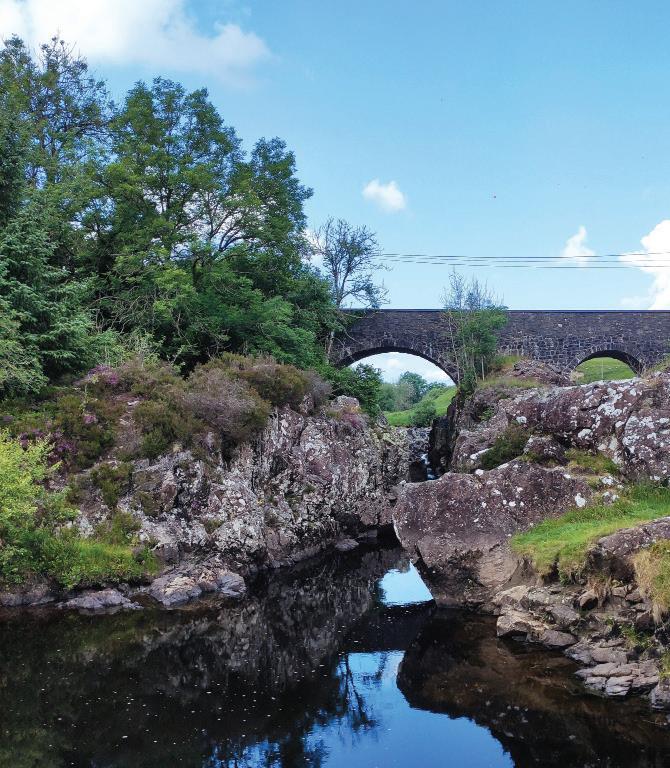 Roche Abbey, South Yorkshire
Deputy Concrete Editor
Roche Abbey, South Yorkshire
Deputy Concrete Editor
Roche Abbey is not in a part of the country you would typically label ‘touristy’. In the middle of the South Yorkshire countryside, there’s not a huge amount else around it. Being a smaller site, it could therefore be easily overlooked, but this would be to ignore its beauty and significance.
Roche is a ruined Cistercian abbey which was built in the 12th century and, unsurprisingly, dismantled as a result of the 16th century dissolution of the monasteries. What remains though is



The South of France isn’t just about fine wines, sandy beaches, and the warmth of the Mediterranean. Nestled into the olive groves in a valley just north of Cannes is a small market town. Valbonne, translating as ‘the good valley,’ sits between the beautiful coastline and the peaks of the Alps. It is within a short (just 20 minute) drive of both, making it a good base for exploring the South, and only a 40-minute drive from Nice Airport.
The town as it stands today was founded in 1519 and took the community over a century to build
stunning, particularly the two transepts which are still largely intact and, according to English Heritage who run the site, “are ranked in importance with the finest early Gothic architecture in Britain.” Equally important to the abbey is the landscaping of the wider site that was designed by Cavpability Brown
in the 18th century, making it not a neglected ruin, but one repurposed as something to be seen.
Visiting Roche Abbey was a beautiful experience. Walking amongst the stonework, I felt a connection to the past, to the people who constructed the site and the monks who lived there. I also felt a broader connection to the world, embracing the quietness and serenity of the site and the designed and natural landscape surrounding it. Roche Abbey isn’t special because it’s the biggest or the best example of its kind (although it is important), it’s special because it’s small, secluded and quiet. It is the perfect ruin, and that is what makes it a hidden gem.
around the Abbey of St Mary (finished in 1230), using exclusively local materials.
Snow doesn’t seem like much of a problem, right? At least in the UK. If you grew up in the countryside, you can probably remember being snowed in, maybe for just a couple of days, a week at most. Living in a town or larger city, you might not relate at all. Despite the havoc caused to the train schedule, the results are never normally long-lasting. But in Dumfries and Galloway, in South-West Scotland, the reality is quite different.
The landscape of Galloway curves and undulates in softer waves than the Highlands. Drumlins, they call them. Little waves of peated marsh-grass and granite boulders. The smaller hills ring long broad lochs and gently give rise to great hulking windswept mountains.
When I first visited, in the summer of 2021, there wasn’t a drop of rain in sight, let alone any snowflakes. The August sun attacked from all
angles, and I frequently gave up on the idea of hiking in preference for some wild swimming. Soon the waters themselves became warm, and every day I felt the need to reward my survival with a freshwater submersion.
Apart from Dumfries, most of the towns in Galloway are small and sleepy, like the sheep I saw dozing in the shelter of the dry-stone walls, sweating through their unshorn winter coats. Even during the tourist season in high summer, most of Scotland’s tourist traffic steams on up to the Highlands or the west coast, barely casting a glance at the
little corner of natural beauty secluded in the south-west corner of Scotland.
The people I met during my brief visit were the only way I could begin to grasp the lifestyle of this secluded area of Scotland. It is a lonely life. Communities, friendships, social circles all stretch across miles and miles of bare drumlins and coniferous forest. Without the use of a car, you’d be helpless.
On one of my outings, visiting a friend of a friend, I was blown away by the sheer remoteness of their little cluster of farmhouses. Tucked away in a valley several miles down a forestry track, accessed by a long winding lane through forest and wind farms and more forest, this little blotch of civilisations seemed out of place amongst the towering hills.
Of course there was no phone signal, and the state of the track down into the valley meant anything other than a fourwheel-drive could never make it down. Slipping into the conversation casually, I wondered, ‘How much snow do you
The Place des Arcades in the centre is host to a number of affordable bars and restaurants. Large canopies ensure that outdoor dining is feasible
for nine months of the year, sheltering people from the intense heat of the Mediterranean sunshine or keeping diners dry from the thunderstorms that rage in the late springtime.
Twice a week, the quiet streets become filled with the vibrancy of a provincial market. Stall holders sell local produce at a fraction of the cost of the bigger markets in nearby Cannes and Nice. At the end of August each year, Valbonne hosts one of the largest antique fairs in the South. Collectors and dealers from all over the region flock to the valley town to display and purchase pieces against the fitting backdrop of the Romaninspired architecture.
This is a traditional, untouched French town at its best. Très jolie!

get up here?’. The hot air froze, and the conversation was bundled through onto a new topic before I knew it.
Later, on the way home, I realised the real danger of snow. Beside the peace,
tranquillity and freedom such a remote lifestyle comes a risk. As we struggled up the rutted track, I learnt that many years before, the family living in that distant valley had lost a child to the snow.
"Twice a week, the quiet streets become filled with the vibrancy of a provinical market"
"I felt a connection to the past, to the people who constructed it"
"The landscape of Galloway curves and undulates in softer waves than the Highlands"
Matthew StothardPhoto: Concrete, Emily Goodwin Photo: Wikimedia Commons Photo: Concrete, Finlay Porter Emily Finlay
concrete-online.co.uk/category/travel/
Leo James Henry Concrete Writer

How well can you get to know a city in five days? I suppose the answer depends on the nature of the city and the nature of the folks who wish to become acquainted with it. The latter in this case were three plucky students – one of which was me – determined to enjoy their time at one of Europe’s most prestigious arts festivals at the peak of summer: Edinburgh Fringe Festival.
For those not in the know, for the entire month of August the city of Edinburgh becomes one sprawling venue for the arts – music, comedy, theatre, and everything in between. Pub basements, conference centres, underground, over-ground, street corners, and more are requisitioned by the artistic community.
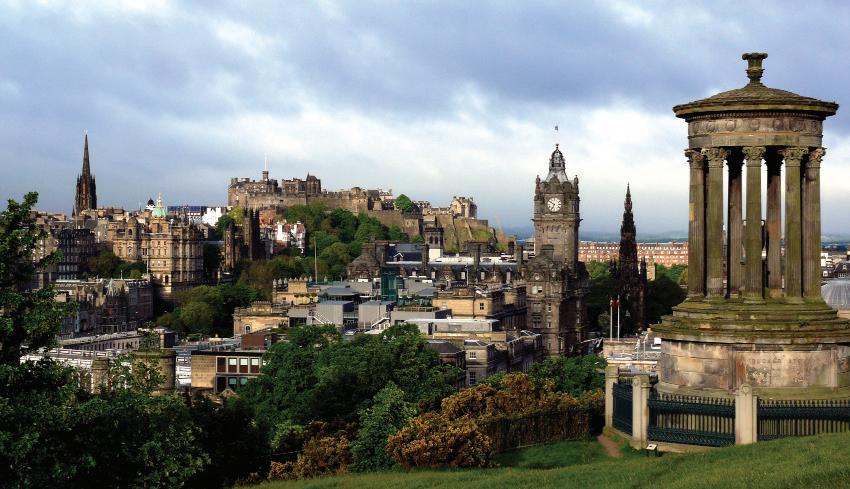
Shows range from the free to the expensive, funny to the downright terrifying, from the topical to the ‘experimental.’ The highlights included Sh*t-Faced Shakesphere (a regular Shakespeare play – except one of the classically trained actors gets completely wasted beforehand), Friendsical (an ambitious attempt to compress the entire run of Friends into a two-
hour musical), and Improv Sherlock Holmes (one of many fantastic improv comedy acts). Overall, a delightful smorgasbord of rich, artistic entertainment for us to sample, hosted by the proud capital of Scotland.
As we were staying a good distance from the city centre, I was concerned we would be too busy racing from venue to venue to explore the city, but fortunately for us a friend who we were happening to cross paths with very kindly booked us onto a tour of the city on our second day. Edinburgh is not a very easy city to navigate for newcomers, and the guide proceeded to lead us through a twisting series of streets and alleys I could not possibly hope to memorise. Only by the last day was I finally getting to grips with the main thoroughfares of the city centre. I
through three consecutive London Underground rush hours’ worth of people, and this combined with the lovely weather has given my memories of the city a positive tint which may not have been present if the traditional Scottish drizzle deigned to christen us with its presence.
Anna Wyeth Concrete WriterI spent at least 2 years of my time in Tucson, Arizona trying to leave. Not much of a selling point I guess, but like many things, its complicated. I’ll start by telling you a bit about my life which, as anyone who knows me will attest, I tend to do a lot. What can I say, I’m an open book; I’ve been told its (kind of) charming.
I grew up moving around a lot. Like, five-different-countries-in-fourdifferent-continents-in-the-first decade-of-my-life a lot. I was always the new kid, always having to say goodbye and rebuild friendships. I moved to Tucson when I was 9 and lived there for 7 years - the longest I’ve lived anywhere. I never really felt I belonged in Tucson, always a bit misaligned with the American lifestyle. Everyone is always driving about in their SUVs to these massive shopping centres that make you want to buy much more than you ever needed. Not that the UK is that different but at least I can cycle everywhere. Anyway, by the time I was 16 I was ready to move on again but my parents, uncharacteristically, had settled.
Tucson is large and spread out and hot. When I say hot I mean 110F for
also cannot overstate how jam-packed the streets were with people: it felt as though we were pushing our way
But Edinburgh itself was undeniability magnificent; towering gothic architecture seemed to flank us on either side of the cobbled street. We ducked through medieval stone doorways and punk club basements, waited for Ubers beside grand old churches and statues of Adam Smith
and David Hume. The tour guide seemed more than a little bashful to inform us that as a result of these men and other members of the Scottish intelligentsia, Edinburgh was once called, and I quote: ‘The Athens of the North.’ My main regret is that we never saw the inside of the gorgeous Edinburgh Castle, but I was able to drop by the statue of Wojtek the bear in Princes Street Gardens – more than adequate compensation in my book.
We almost didn’t make time for Arthur’s Seat, a large hill-like geological landmark (I’m not quite sure what category it falls into) that
overlooks the city, but we were able to squeeze in the long trek (in totally inappropriate clothing, mind you) in between a couple of shows at the Summerhall.
Apparently, it has long been tradition for Fringe performers to make the pilgrimage to the peak, which perhaps explained the rather large queue for the summit when we emerged onto the grassy plateau that sat beforehand. No matter – we ate our picnic in the sunshine and enjoyed the view over the wonderful city we had briefly come to love.
three months of the summer (sorry, 45C). I remember once I was outside at 9pm and it was 104F. Let that sink in for a second. 104F. No sun.
Speaking of the sun, Tucson sunsets are the most beautiful I’ve ever seen. Every single evening the sky erupts into pink and red and orange and yellow, all playfully fading in and around fluffy clouds until the sun gently slips behind the mountains.
Lizards skuttling, quails bobbing, palo verde trees with their bright green bark, javalina pigs running across the street, coyotes howling in the night, the mighty saguaro cactus, towering above everything, its strong arms reaching to the sky. There are probably more animals that can kill you in my parent’s garden than there are in the whole of the UK.
And when it rains, it really rains. Imagine being excited about rain. Imagine feeling the humidity rise, watching the clouds roll in over the mountains and the temperature drop, smelling the creosote releasing its pollen. It’s warm rain, fresh rain, life-giving rain. Afterwards everything is new.
Writing this is making me home(?)
sick… Now that I don’t live there, I can appreciate Tucson for all that it has. It is far too hot, but at least it doesn’t get dark at 4pm. I guess nowhere is perfect. It’s like a relationship; however much you appreciate someone, spending all your time with them is bound to leave you feeling a bit claustrophobic. Sometimes space is healthy.
I guess that’s why lots of artists live there. Then the stars come out, so bright and clear, unobstructed by light pollution or clouds. I guess that’s why lots of astronomers live there.
Tucson is a desert. That probably makes you think of vast empty expanses of sand, but the Sonoran Desert is the most biodiverse desert in the world. It’s full of weird and wonderful plants and animals.

"Shows range from the free to the expensive, funny to the downright terrifying"Photo: Wikimedia Commons
"Every single evening the sky erupts into pink and red and orange and yellow, all playfully fading in and around fluffy clouds"
 Alfie Green Sports Writer
Alfie Green Sports Writer
Upon first hearing this, I wasn’t sure what was going on. Had Norwich released a novelty line of flags that fans were beside themselves for? No. I quickly realised that in the modern age of football, on social media, the image of a club’s corner flag had quickly taken on the mantle of meaning the manager had been sacked. Whenever a club releases an important image, it is often shown with a stock image (in most cases of a corner flag).
Once I had deciphered what was meant by this statement, I thought about what this meant. It has been around a year since Daniel Farke, the beloved German who held the reins of the East Anglian club from 2017 until 2021, was given the corner flag treatment and dismissed.
He led them to two promotions, both winning the Championship title, and a relegation and the beginnings of a second before he was sacked.
At the time of his dismissal Farke had lost 15 consecutive games with Norwich City, an English record. He was replaced after nine days with recently sacked Aston Villa manager Dean Smith. Smith failed to work miracles and Norwich’s relegation was confirmed with a 2-0 loss at Aston Villa on the 30th of April 2022, making them the first club to be relegated six times from the Premier League.
A new season, many hoped, would allow Smith to improve his side. More possession was expected and a few new signings, which hopefully would have Norwich fighting for the championship title again. This however hasn’t exactly been the case.
Norwich were winless in their first 3, which was followed by a successful 6 wins on the spin. However, their fortunes have wavered, with just 1 win from their last five and three losses. Fans are clearly not happy hence the fan I spoke to begging for a statement emblazoned with a corner flag.
Something clearly isn’t right at Carrow Road, but it isn’t disastrous just yet. They’re still 5th in the table, and just five points off the automatic promotion slots. So, this discourse must come from somewhere else.
At the time of Farke’s sacking a year ago, there was a split within the fanbase about whether it was the right decision. He had led them
to two promotions and received minimal backing when compared to the Premier League giants he was expected to compete against, but at the same time the performances were awful, and the rot had set in.
Higher up there was also trouble in the club; Stuart Webber the Director of Football made bizarre comments about only giving 90% and making public his plans to climb Mount Everest in the summer, all whilst the club was predictably sliding into another relegation. This was combined with a feeling amongst some fans that it was time for beloved owner and TV Chef Delia Smith to leave, with protests taking place towards the end of the season.
Dean Smith may not be the man to give Norwich City the stability that their fans so desperately want, but can anyone really achieve regular Premier League football with the set up they have currently?
Investment is not on the level with
the clubs they have to compete against to achieve Premier League safety. Rumours of huge American investment occurred in the summer, and Mark Attanasio (an American millionaire and owner of the Milwaukee Brewers baseball team) recently acquired 16% of the shares at the club.
It remains to be seen whether this can lead to meaningful squad investment and Premier League stability. Until then I think most managers who get the hot seat at Carrow Road will expect the inevitable corner flag eventually.-

England are through to the semi-finals of the Rugby World Cup after a convincing 41-5 victory over Australia. Yet World Cup fever has not quite found itself in this country due to the time difference causing a lack of awareness of games.
The tournament is being held in New Zealand, with a substantial thirteen-hour time difference. This makes it difficult for fans
to watch games. For example, England’s semi-final against Canada kicked-off at 3:30 am on Saturday 5th.
I reached out to members of the Women’s Rugby Union Club here at UEA, and they reiterated the time difference problem. Highlighting the issue that it is difficult to create social events for the occasion, and being so early, people cannot even meet in the pub to casually watch.




Norwich’s very own Poppy Cleall has been spotted around the city on bus-stop adverts campaigning for the World Cup, which seems to be the only way to know the competition is in full swing.
Reports of matches are drowned out by the endless reporting of other Sports, which get centre
page whilst the heroics in New Zealand get pushed down the pecking order.
the game live, ITV has the full coverage of the games on the ITV Hub, for fans to watch at a more convenient time. This is very helpful for fans who cannot make the very early starts for various reasons.
The tournament was scheduled to be played last year. However, it had to be delayed a year due to “insurmountable challenges” created by the Covid-19 pandemic.
overall, with five-time winners New Zealand ranked second. England will face Canada, who have looked strong in this tournament. However, if England play the way they have been, they will look at a potential final against France or New Zealand. The England Women’s Team has not stopped scoring this tournament; they lead the total points tally with 213 and tie with New Zealand on 35 tries.
The tournament also clashes with the Men’s T20 Cricket World Cup, currently held in Australia, further flooding the sports sections of newspapers.
A great point raised by Emily Colman at UEA’s Women’s Rugby Union was that despite the lack of promotion and the difficulties in actually watching
After winning all three of their group games and cruising through the quarter-finals, the most recent victory extended England’s record-winning run to 29 tests in a row. England are very confident they can go all the way.
Coming into the tournament, they were ranked number one
If England beat Canada, they will play the final on Saturday the 12th, kicking off at 6:30 am UK time which would be worth getting up for!
“Something clearly isn’t right at Carrow Road but it isn’t disatrous just yet.”
“I just want the picture of the corner flag, come on Norwich just give us the corner flag”
“Investment is not on the level with the clubs they have to compete against in the Premier league”
Drew Murphy Senior Sports Writer
“A substantial thirteen-hour time difference...makes it difficult for fans to watch games.”
“ITV Hub has full coverage of the games for fans to watch at a more convienant time.”Photos: Wikimedia Commons
concrete-online.co.uk/sport/
 Photo: UEA Rugby Drew Murphy Senior Sports Writer
Photo: UEA Rugby Drew Murphy Senior Sports Writer
The art of tanking has been in the NBA for years. It was the reason the NBA introduced the draft lottery back in 1985. Tanking is when a team deliberately loses games, usually at the end of the season, to obtain a higher draft pick to get the greatest young prospects in basketball. The lottery lessened the effectiveness of tanking as it gave the weakest teams a chance at getting the number one pick, but crucially not guaranteeing they would.

Tanking’s significance remerged in 2009 when teams attempted to turn their franchises around overnight by signing top players and creating “superteams”. The Boston Celtics’ signing of Ray Allen and Kevin Garnett to pair with Paul Pierce pioneered the era of the Big 3s. This, in turn, meant that the league’s top players were being funnelled into a narrow set of teams, thus distancing themselves from those struggling at the bottom.
As a result, the NBA found itself with the age-old problem of the rich getting
richer and the poor getting poorer. The weaker teams were thus forced to lose as many games as possible to obtain the coveted pick and turn their franchise around.
maximise their chances of a higher pick in this year’s draft.
The NBA commissioner Adam Silver has introduced changes to try and prevent
tries, tanking will never go away because of its potential that it could turn around a struggling team with a oncein-a-lifetime player from the draft.
And this year, the player is being argued as being the biggest prospect basketball has ever seen. His name is Victor Wembanyama.
A 7’3 18-year-old from Nanterre, France, whose 8ft wingspan makes him an absolute nuisance in defence but also, he can shoot like a point guard, and he showed it to 200 NBA scouts who made the trip to Las Vegas to watch his French side play two exhibition matches.
In one game, Wembanyama scored 37 points, including seven threes, and an impressive display of five blocks left the scouts with no doubt about his phenomenal abilities.
his prime.
Wembanyama’s combination of size, skill, and agility makes him the complete package and why so many teams are desperate to have him next year. He has an exceptionally high ceiling, but only if his body will withstand it.
The majority of 7’3 basketball players constantly struggle with injuries due to their size. At the moment, Wembanyama has a very skinny frame, but we have seen players before bulk up and become absolute machines; look at Giannis Antetokounmpo, who has developed into one of the best players in the league, but not many people would have guessed it when he was a skinny 18-year-old.
Suppose Wembanyama were to bulk up as Giannis did. In that case, I have no doubt basketball will have an extraordinary player for many years.
This season we have seen evidence of this already. The Utah Jazz has intentionally replaced their roster of talented players with younger ones, and more draft picks. As a result, they hope they might lose enough games to
teams from intentionally losing games. He has tried flattening lottery odds to just 12.5 for the top 3 worst teams and a play-in tournament for those in the middle of the pack to make the playoffs. But as much as the NBA
The hype surrounding Wembanyama arose after a video emerged of a 16-yearold Victor playing in a 2v2 against the three-time NBA defensive player of the year Rudy Gobert. The video showed how comfortable and effortless he looked, catching rebounds and making shots against a talented player in
There is no wonder why many teams are already considering tanking this early in the season; Wembanyama appears to be the player that could change a team for a generation.
The great late Muhammed Ali famously once said: “Float like a butterfly, sting like a bee. The hands can’t hit what the eyes can’t see.” And yes, whilst appropriate for boxing, the latest combat sport to hit centre stage succeeds in failing ‘The Greatest’ boxer ever.
‘Slap Fighting’ involves two people standing either side of a table, an arms-length away, taking turns to slap their opponent as hard as they can. You win by the usual combat methods, Knockout, Technical Knockout or judges’ decision. The rules vary depending on the organisation running the event, with some requiring mouthguards and ear protection and some requiring no protection at all.
However, one rule that is universal is, you cannot defend yourself.
What counts as defending yourself? Ihear you ask. Well, anything from as much as blocking your opponent’s slap with your hands to as little as turning your head slightly to soften the blow.
You cannot raise your shoulders to protect your chin either. The lack of defence is what’s making slap fighting grow to the extent it is. Less defence means more knockouts, and as hard as it is for some to admit, many watch combat sports in the hope of seeing a knockout.
Whilst there are many precautions taken in order to ensure fighter safety, one competitor has already died from competing after suffering a brain haemorrhage and the likelihood of competitors suffering brain damage either instantly or long-
term is high.
The ‘Power Slap League’ was announced at UFC 280 which, backed by UFC President Dana White, aims to emulate the success of the UFC with Hunter Campbell, Chief Business Officer of UFC, saying: “After testing it, it became clear to us that there’s massive potential here as a sport, not unlike the early years of the UFC.”
The Nevada State Athletic Commission who gave Dana White the green light for this new slap league, have been met with criticism for doing so with many dumbfounded as to why they gave the go ahead.
MMA reporter Simon Head explained the outrage by saying: “MMA: A sport where the fight ends if you are not intelligently defending yourself. Slap Fighting: A sport where the rules insist that you refrain from intelligently defending yourself.”

Slap fighting originated in eastern Europe in the early 2000s. It remained an underground form of entertainment and sport for many years. However, due to its big hits, big knockouts nature, the virality of the sport has seen it grow rampantly through social media.
It’s transition from underground to mainstream will only continue with not only Dana White creating his own promotion, but many others as well.
Seemingly, with health and safety taking a backseat, and slap fighting becoming more mainstream by the day, Muhammed Ali’s famous quote might just be made to throw in the towel, and Rocky Balboa’s “It ain’t about how hard you hit. It’s about hard how you can get hit and keep moving forward. That’s how winning is done.” quote becomes more apparent than ever.
“MMA: A sport where the fight ends if you are not intelligently defending yourself.
Slap Fighting: A sport where the rules insist that you refrain from intelligently defending yourself.
UEA clubs have been competing for almost a month in the 2022/23 BUCS season, the highlights so far include:
UEA Surf travelled to Cornwall for BUCS Nationals, taking 15 competitors with them. I reached out to them on how the trip went, they said: “BUCS is definitely one of the best trips in our eyes. The whole of Newquay gets flooded with thousands of university students for a weekend and the vibes are amazing.
This year there were about 400 competitors in total and the competition lasts for 3 days. Considering there aren’t many waves in Norwich, we had 3 great guys competing for us. We didn’t win big but are very proud. Although we are obviously there to compete, it never feels pressured. Surfers are very chill so there’s never any huge competitiveness between universities.
I think the best thing about the trip was how well everybody bonded. We all stay, cook meals, socialise & surf together everyday so
people make friends really quickly. There is such a supportive atmosphere when you’re in the water.
We would encourage everybody to try surfing. It is really beneficial for your mental health as well as physical. You get such a rush everytime you stand up on a wave. Surf is a very inclusive club, the majority of our members have never surfed before joining. It feels amazing watching them catch their first wave and grow in confidence.

Our next trip is to Wales this month, I’m sure the vibes will be just as immaculate as Newquay. We’ve also got
Devon and an international trip in the works so we’re very excited for what the rest of this year brings.”
UEA Women’s Football won their first game in their new division.
UEA Men’s Football won five out of six of their games so far this season with the biggest results coming against De Montfort as the first team won 6-0. The thirds progressed to the next round of the cup against Nottingham Trent whilst the seconds did the same after winning on penalties against Oxford
UEA Netball won five out of seven matches played with the seconds confirmed their place in the next round of the cup with a 46-26 win against Worcester. The biggest win came from the thirds as they beat Lincoln 58-25.
against Nottingham Trent backed up with a 16-1 win over Loughborough.
Men’s Volleyball has got off to a good start winning 3-1 against Birmingham and Staffordshire. Men’s Futsal ‘s first team also recorded a win in their first game with a 5-3 win over Wolverhampton.
Men’s Hockey are undefeated in their first four games with the first team defeating both Nottingham and Nottingham trent, the former 4-2 and the latter 3-2.
it’s a good start to the season for many clubs within UEA, hopefully this good form continues and UEA sees another successful year in BUCS.
Women’s Squash has also begun brightly after they beat Loughborough 4-0 and then Nottingham 3-1. There were big wins for Men’s Table Tennis with a 17-0 win

This past week UEA Climbing shaved their heads in order to raise money and awareness for Alopecia. I reached out to UEA Climbing to ask why and they said: “We did the fundraiser as our president was recently diagnosed with Alopecia and made the decision to shave their head. Other members of the club stepped up to shave their heads as well in support which led to our charity event at the Sportspark where eight
of

£1000.”
Alopecia UK is a charity which aims to, “provide hope and confidence to people with alopecia by funding research into its causes, with the aim of finding treatments, and ultimately, a cure. For too long those with alopecia have had to deal with treatments that work for some and not for others, with no actual cure available.
Research carried out by Wimpole Clinic found that 85% of men will suffer some form of hair loss at some point in their lives and according to the NHS, eight million women in the UK will suffer from hair loss. However, in June 2022, a medication called Baricitinib received approval from the Food and Drug Administration to treat severe cases of alopecia areata. It’s the
first FDA-approved systemic treatment for alopecia. This is the first type of systemic treatment that helps treat hair loss all over the body.
Climbing as a sport has recently grown in popularity


due to its inclusion in the 2020 Tokyo Olympics. UEA Climbing told me, “As a club, we aim to let everyone try it out and try as hard as they want to. Both seasoned climbers and new climbers are welcome to all our sessions. We also run trips outdoors so members can have
a go at climbing real rocks and enjoy the sport where it was created in the great outdoors.”
“UEA Climbing is the perfect club to join if you want to challenge yourself, make a great bunch of friends and try a new sport! We are also committed to making sure that all members are trained to the highest safety standards.”
UEA Climbing set a goal of raising £200 for Alopecia UK which has already been smashed as they currently have raised over £1000. You can still donate to UEA Climbing’s Just Giving page through their Instagram as well as donating directly to Alopecia UK on their website at www.alopecia. org.uk.
“We (UEA Climbing) have already raised £1000 for Alopecia UK”
our members shaved their heads and we collectively raised overPhotos: Unsplash Photo: Unsplash Photos: Unsplash Photos: Unsplash Dan